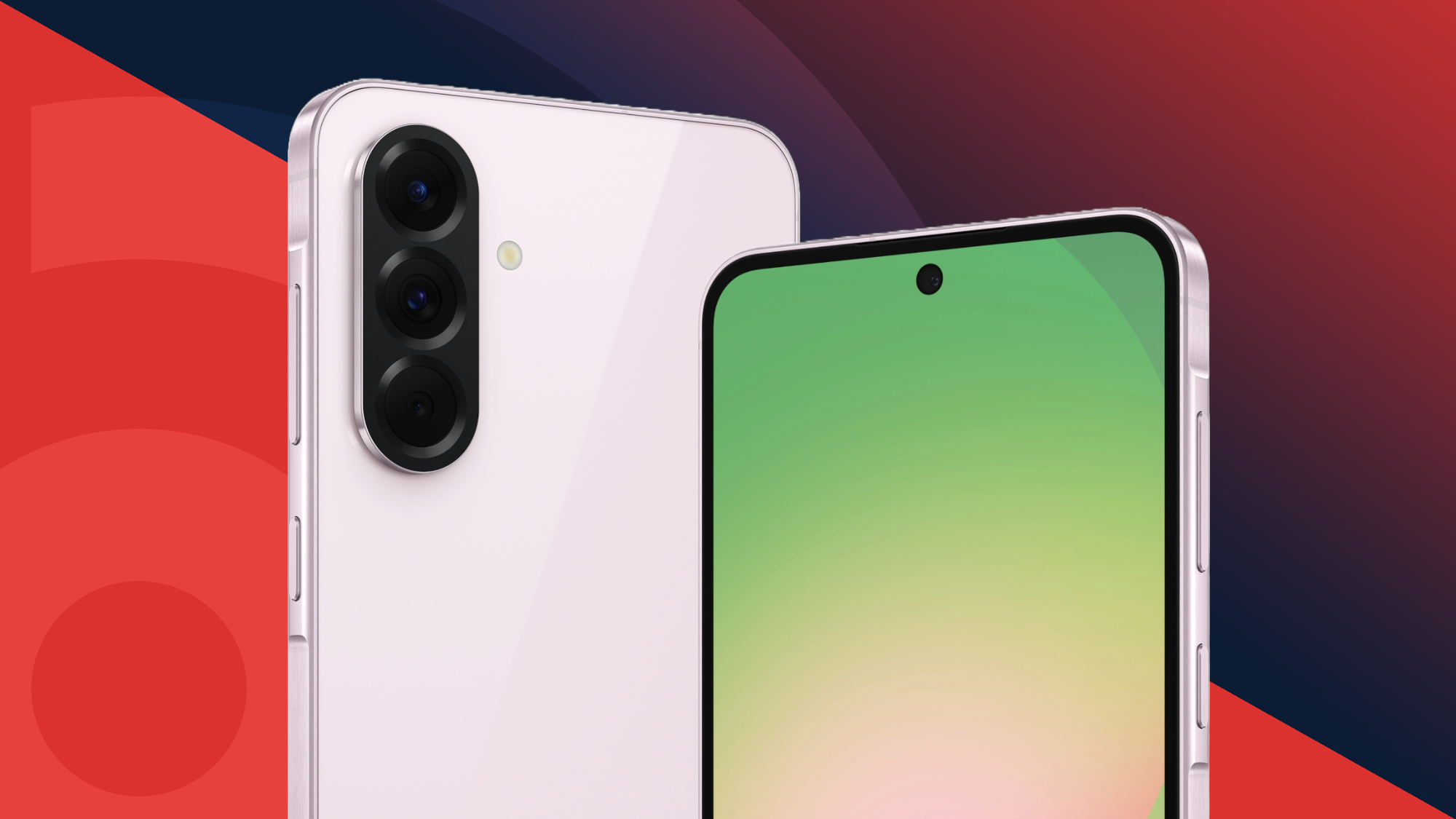
The best cheap phones can't match the best phones for flagship bells and whistles, but they do offer great screens, long battery life, and excellent value for money.
We've reviewed over 1,000 handsets since 2005, and in this guide, we've leveraged that significant phone-testing experience to recommend the best cheap phones from brands including Samsung, Apple, and Google.
Our current selection includes big-name phones like the Samsung Galaxy A56 and iPhone 16e, but if you're after a cheap phone for a more specialised use case, then the Motorola Edge 60, OnePlus Nord 5, and Xiaomi Poco X7 Pro are worth considering, too.
Of course, if you can spend a bit more, then one of the best Android phones, best iPhones, or best camera phones might be a more suitable fit.
Quick list
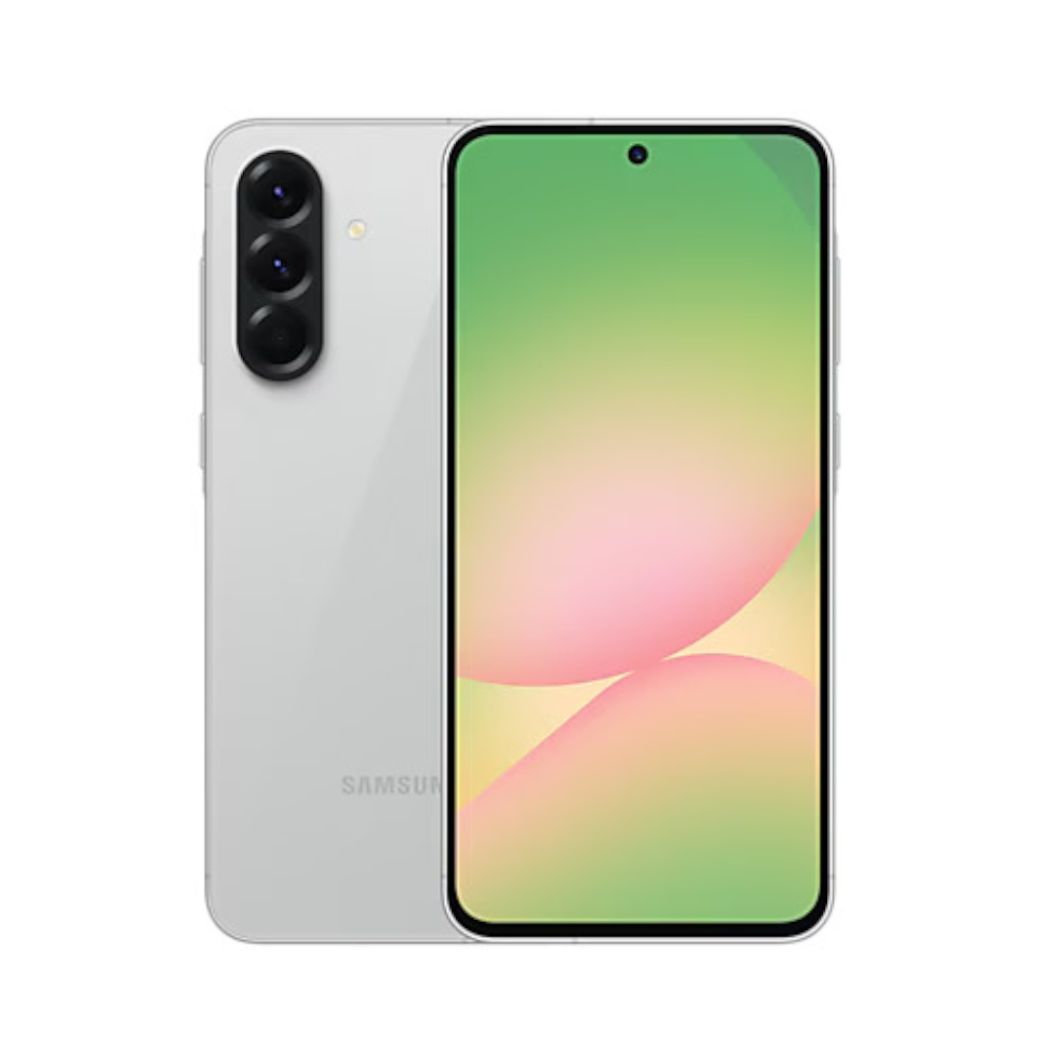
Samsung's 2025 midranger offers great battery life, an impressive 6.7-inch display, and a design that looks and feels more premium than its affordable price tag suggests.
Read more below
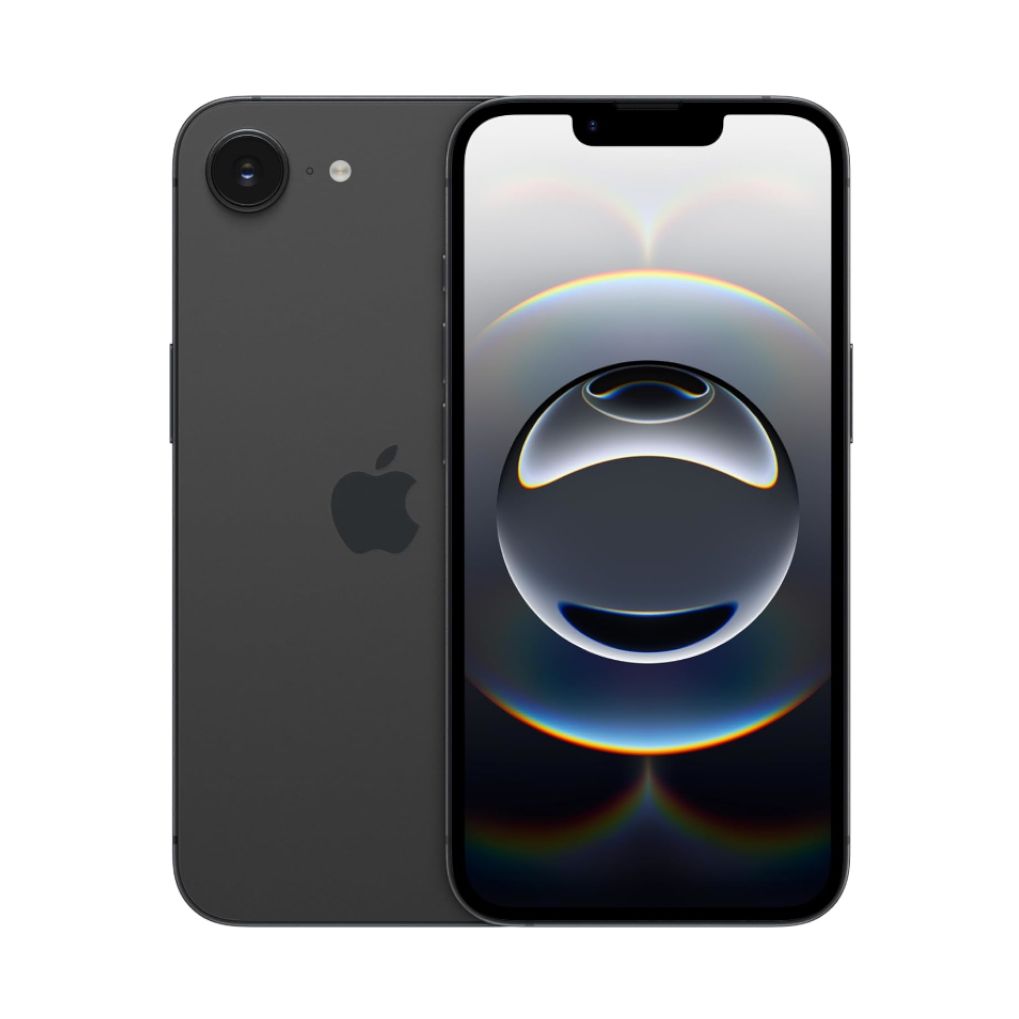
The iPhone 16e isn't 'cheap' in the traditional sense, but it's now the cheapest iPhone available as new from Apple directly, and you'll get market-leading longevity for your money.
Read more below
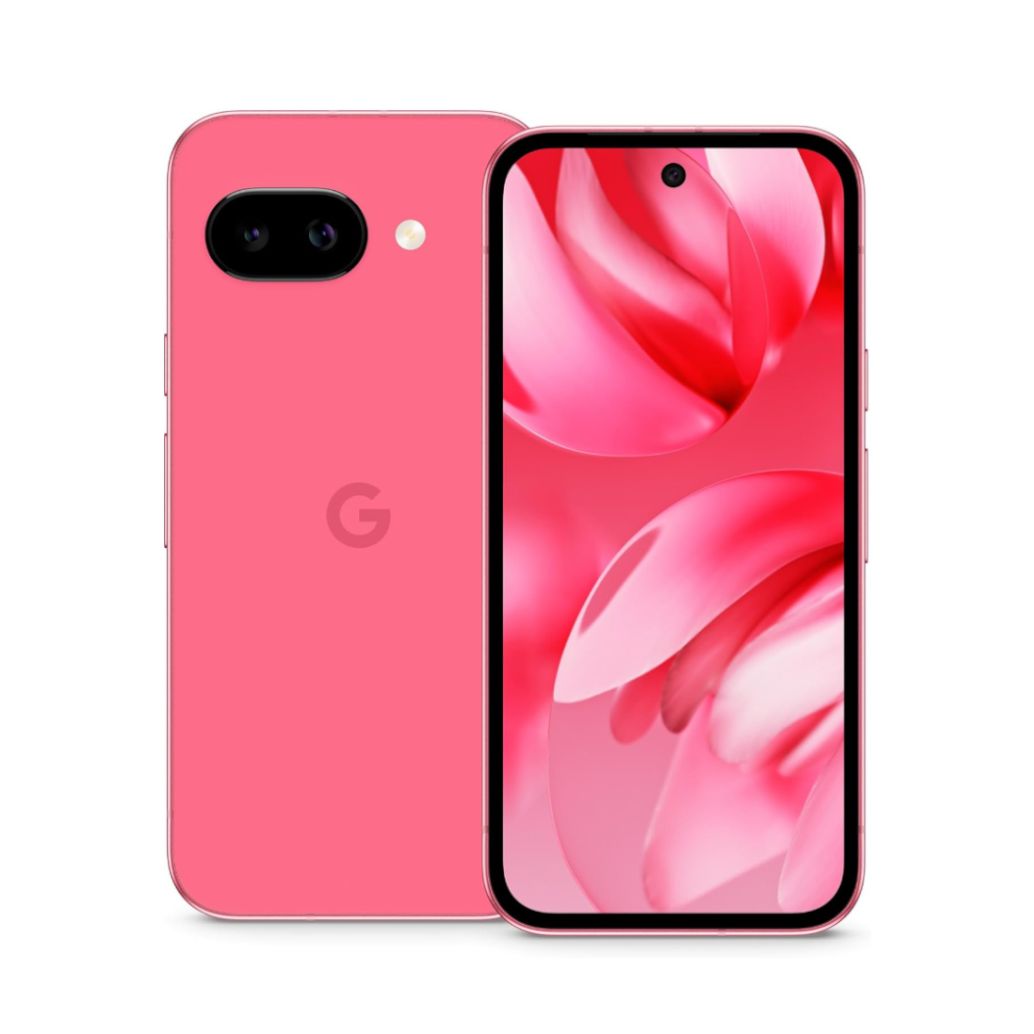
The Google Pixel 9a is the most affordable way to access Google's impressive suite of AI features, offering excellent cameras and stellar longevity to boot.
Read more below
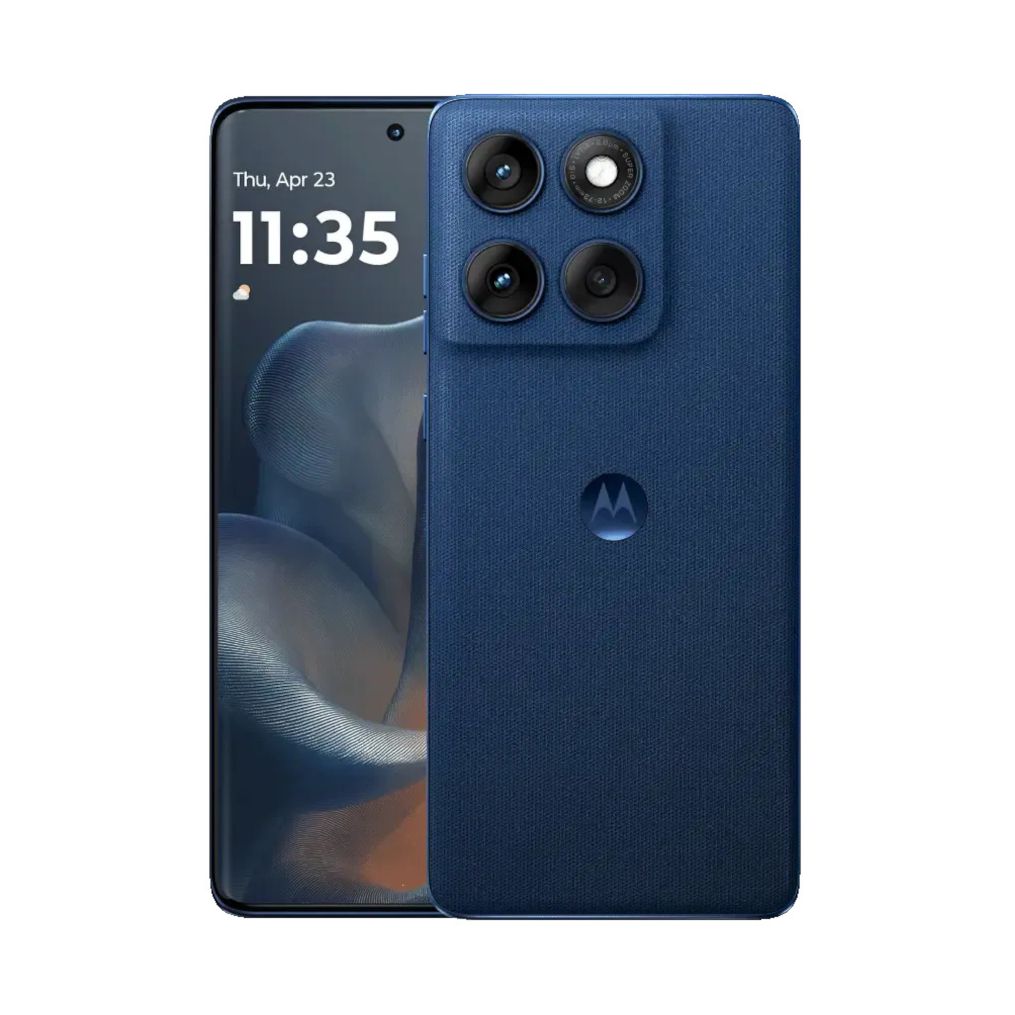
For photography fans, the Motorola Edge 60 offers a Pro-level 10MP telephoto camera with 3x optical zoom, as well as 50MP main and ultra-wide lenses.
Read more below
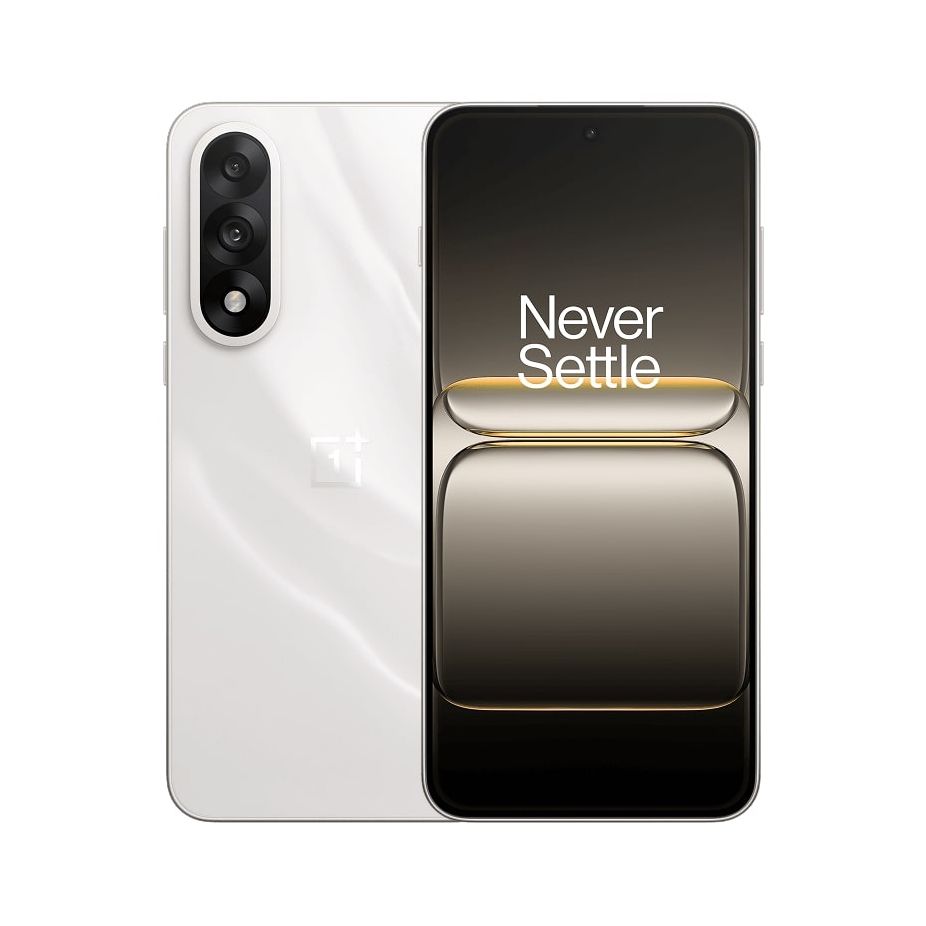
Despite its seemingly midrange chipset, the OnePlus Nord 5 is a formidable performer. It comes with up to 12GB of RAM and 512GB of storage, which is quite frankly indulgent in this price range.
Read more below
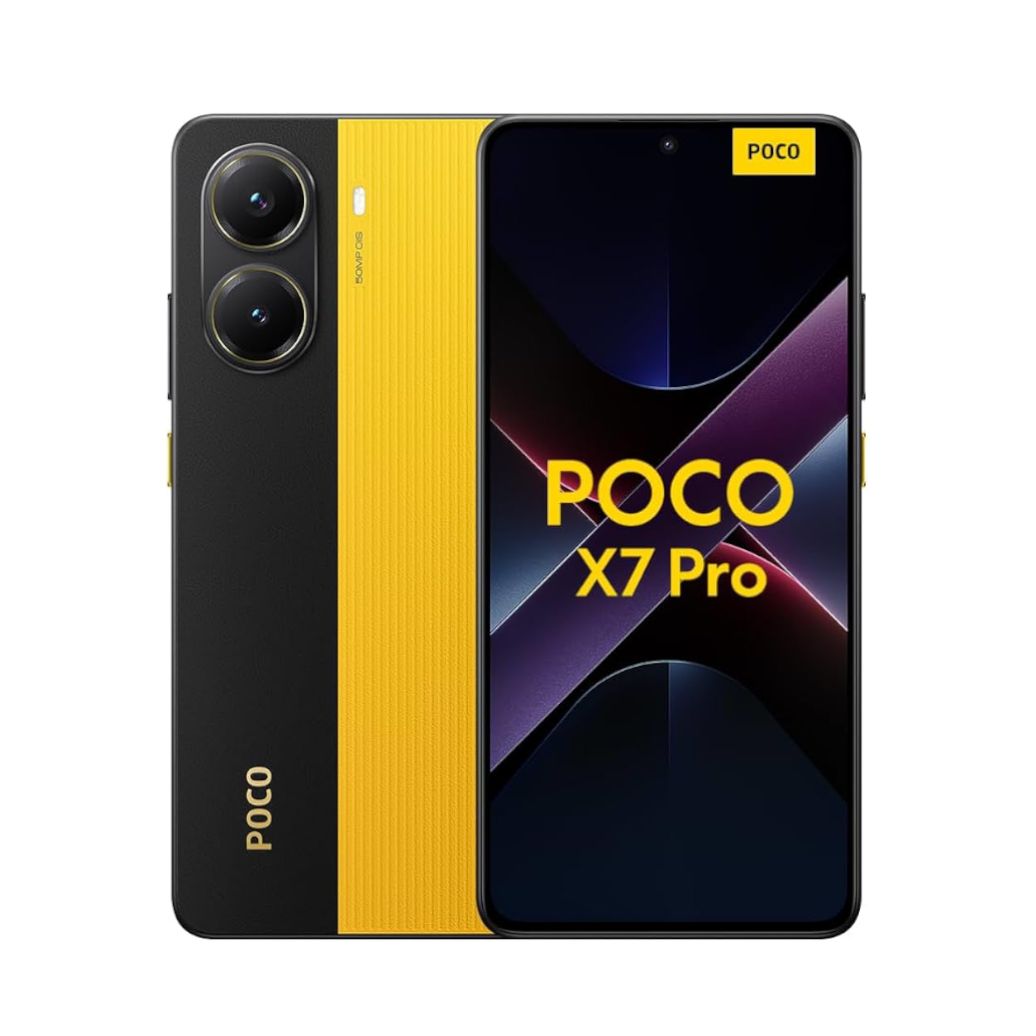
If battery life is your priority, the Poco X7 Pro's almighty 6,000mAh cell will see you through two days of casual use. The phone's Mediatek Dimensity 8400 Ultra chipset is seriously impressive, too.
Read more below

I'm TechRadar's Phones Editor, and have been reviewing and writing about the best mobile devices for several years. Based in the UK, I handle news and feature coverage for the phones section of the site, and regularly edit TechRadar's phones-related reviews and buying guides. You'll find my byline on over 1,500 TechRadar articles.
The best cheap phones
Why you can trust TechRadar
Below, you'll find full write-ups for each of the best cheap phones on our list. We've tested each model extensively, so you can be sure that our recommendations can be trusted.
The best cheap Samsung phone
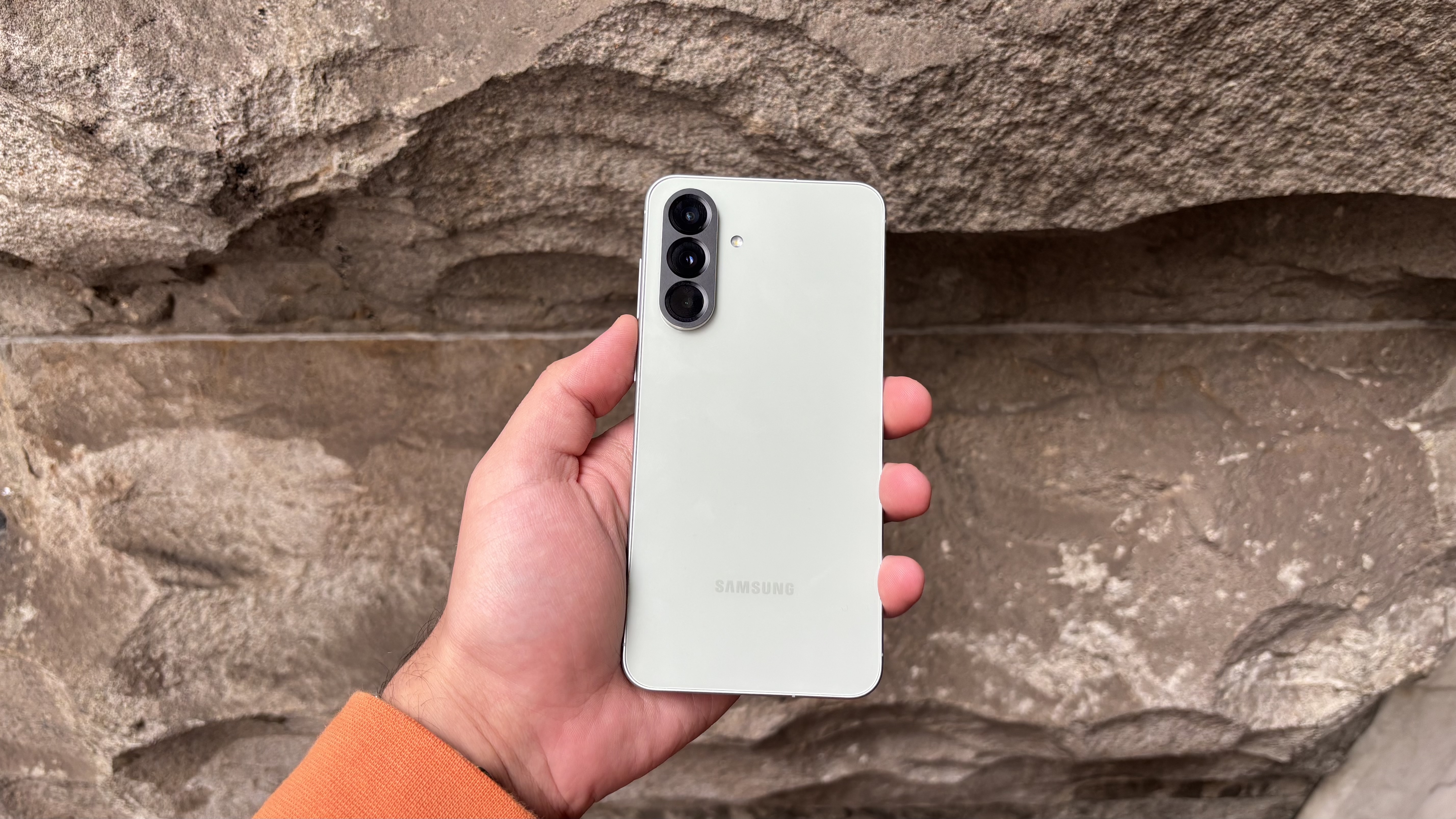
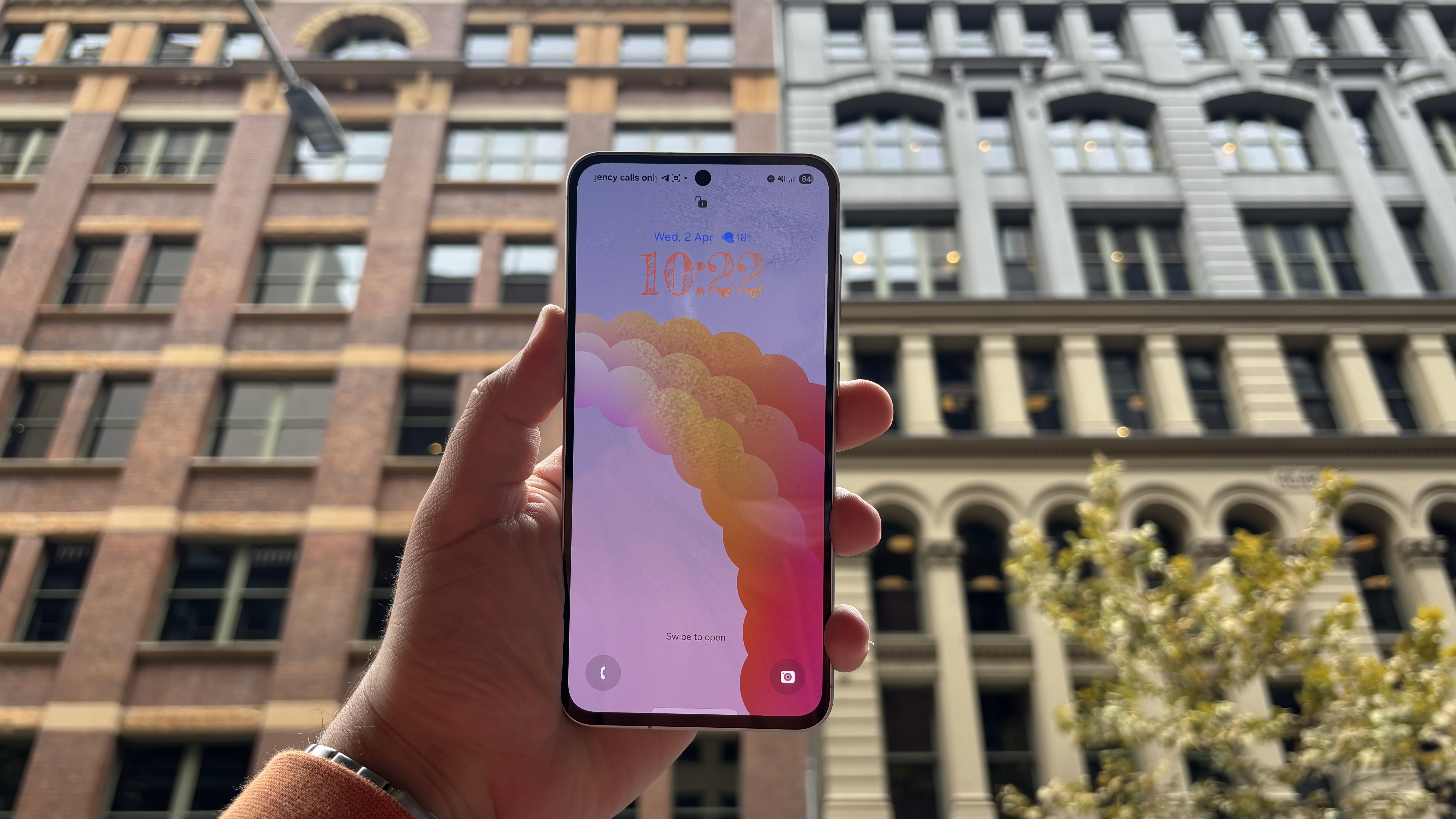
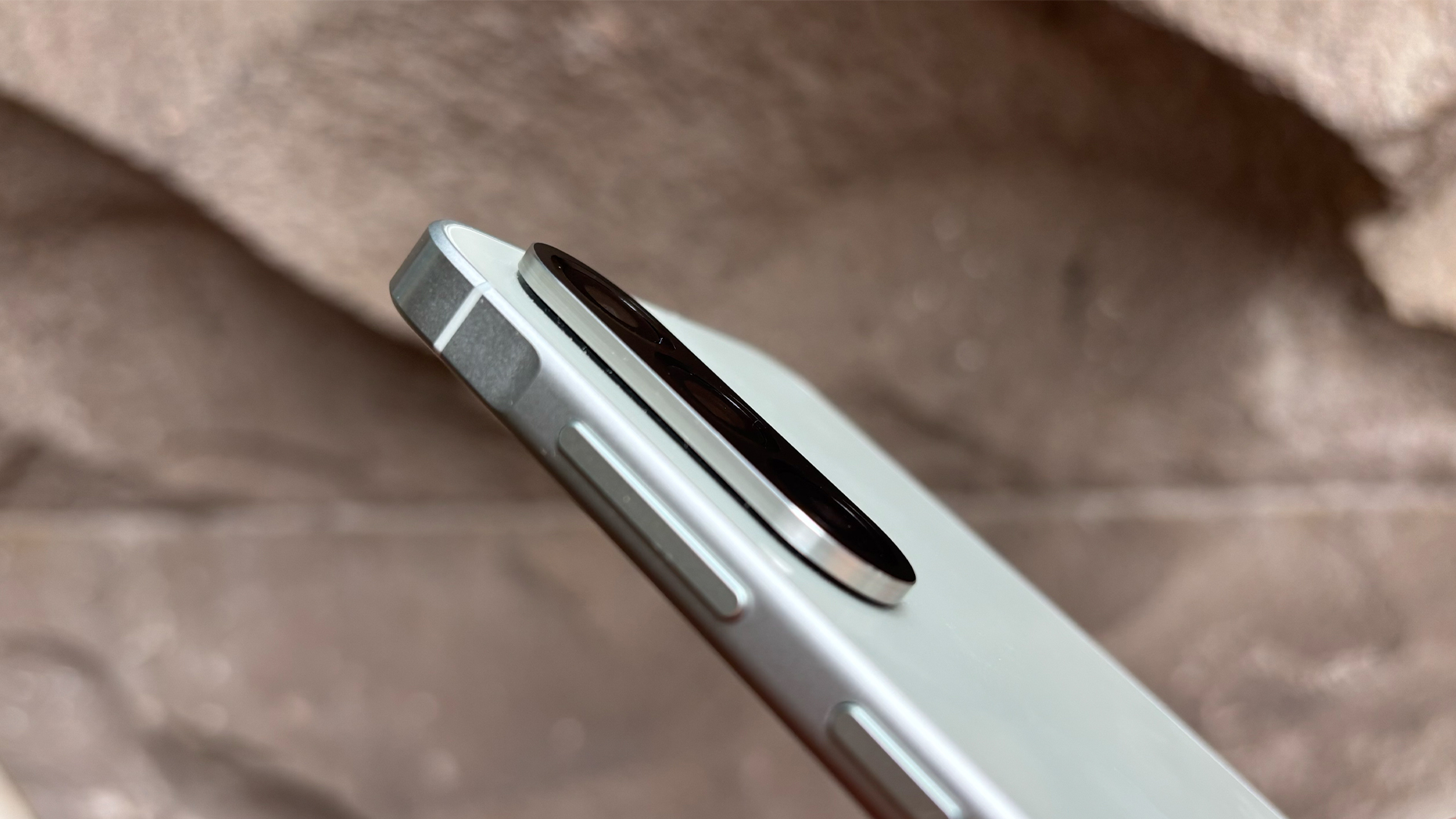
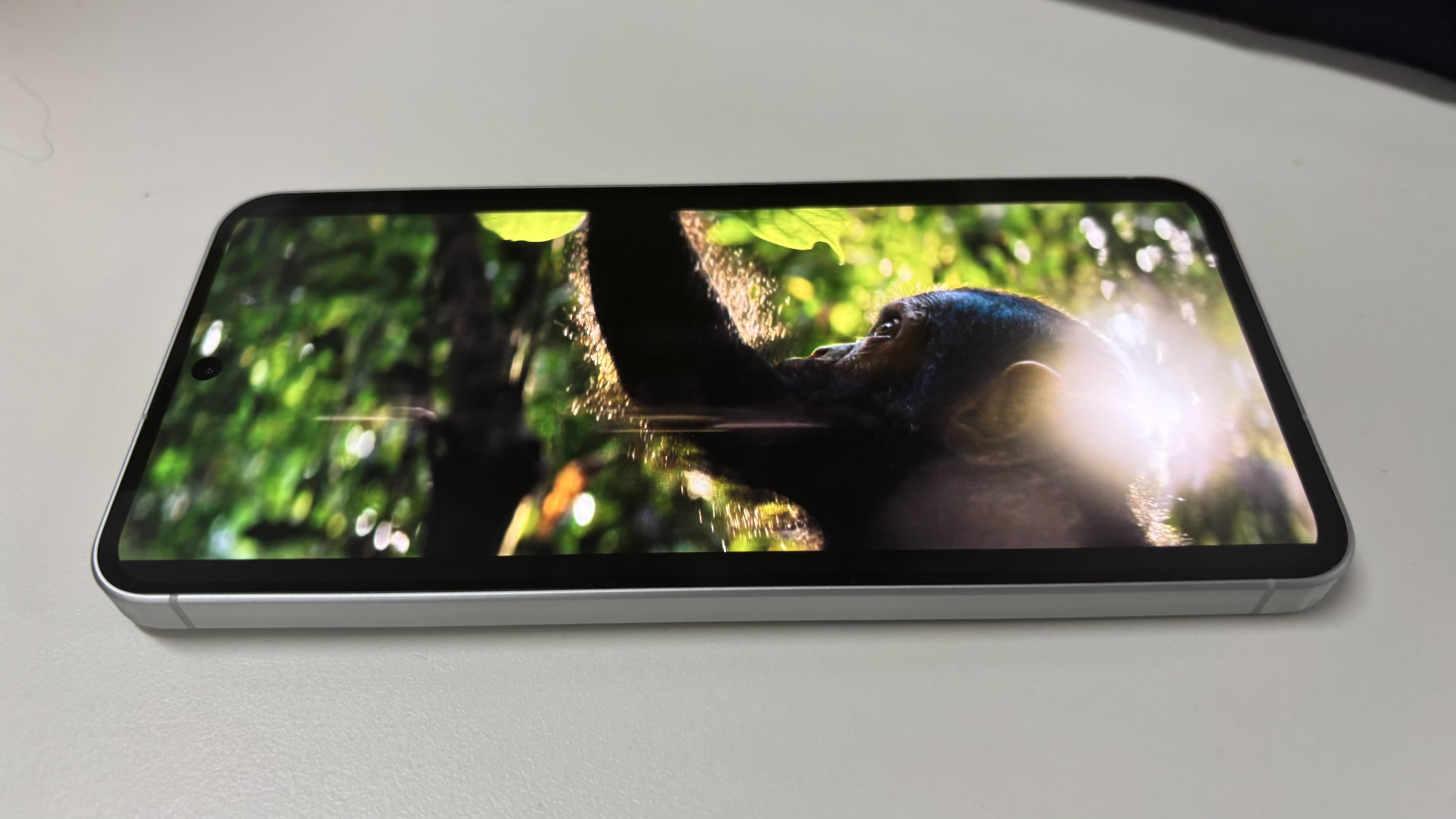
Specifications
Reasons to buy
Reasons to avoid
Samsung's Galaxy A series smartphones regularly rank among the best Samsung phones for value, and the company has again delivered a supremely well-rounded (and great-looking) product with the Samsung Galaxy A56.
Bigger, thinner, lighter, and just generally more premium-feeling than its predecessor, the Galaxy A56 delivers a near-perfect midrange package that will satisfy all but the most demanding buyers.
Specs-wise, this phone delivers a whole lot of great hardware for its relatively modest £499 price tag. You get a great-looking, IP67-protected metal design, a vibrant 6.7-inch AMOLED display (which is larger than the screen on the Galaxy A55), and a long-lasting 5,000mAh battery.
On the cameras front, the phone packs a 50MP main snapper, a 12MP ultra-wide lens, and a 5MP Macro camera, so you can take quality photos in a variety of lighting scenarios. Of course, the A56 is not the best camera phone around (and the Pixel 9a is arguably a better budget snapper), but we were impressed by the phone's photographic versatility and quality during testing.
Our main criticism of the Galaxy A56 lies with its Exynos 1580 chipset, which is plenty powerful enough for everyday smartphone tasks like streaming, scrolling, and texting, but it can't handle graphically demanding mobile games. Mind you, that's not what this phone is designed for, so we doubt that you'll be disappointed by the Galaxy A56 if you're looking for a long-lasting, feature-packed everyday handset.
If you're willing to spend a bit more, the £649 Samsung Galaxy S25 FE is also available; it features a more powerful chipset (the Exynos 2400), an 8MP telephoto camera, 15W wireless charging, and reverse wireless charging.
The best cheap iPhone
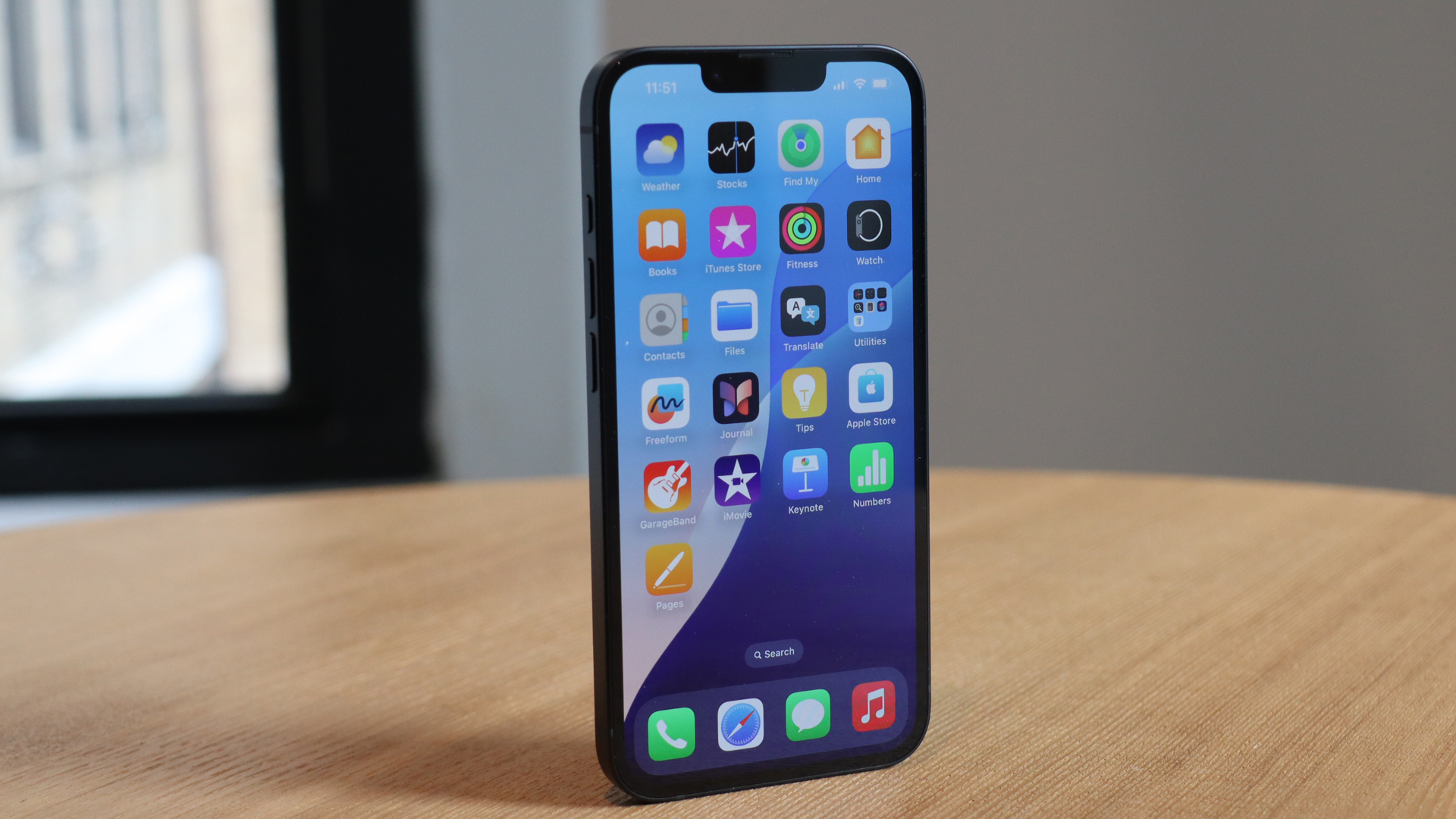
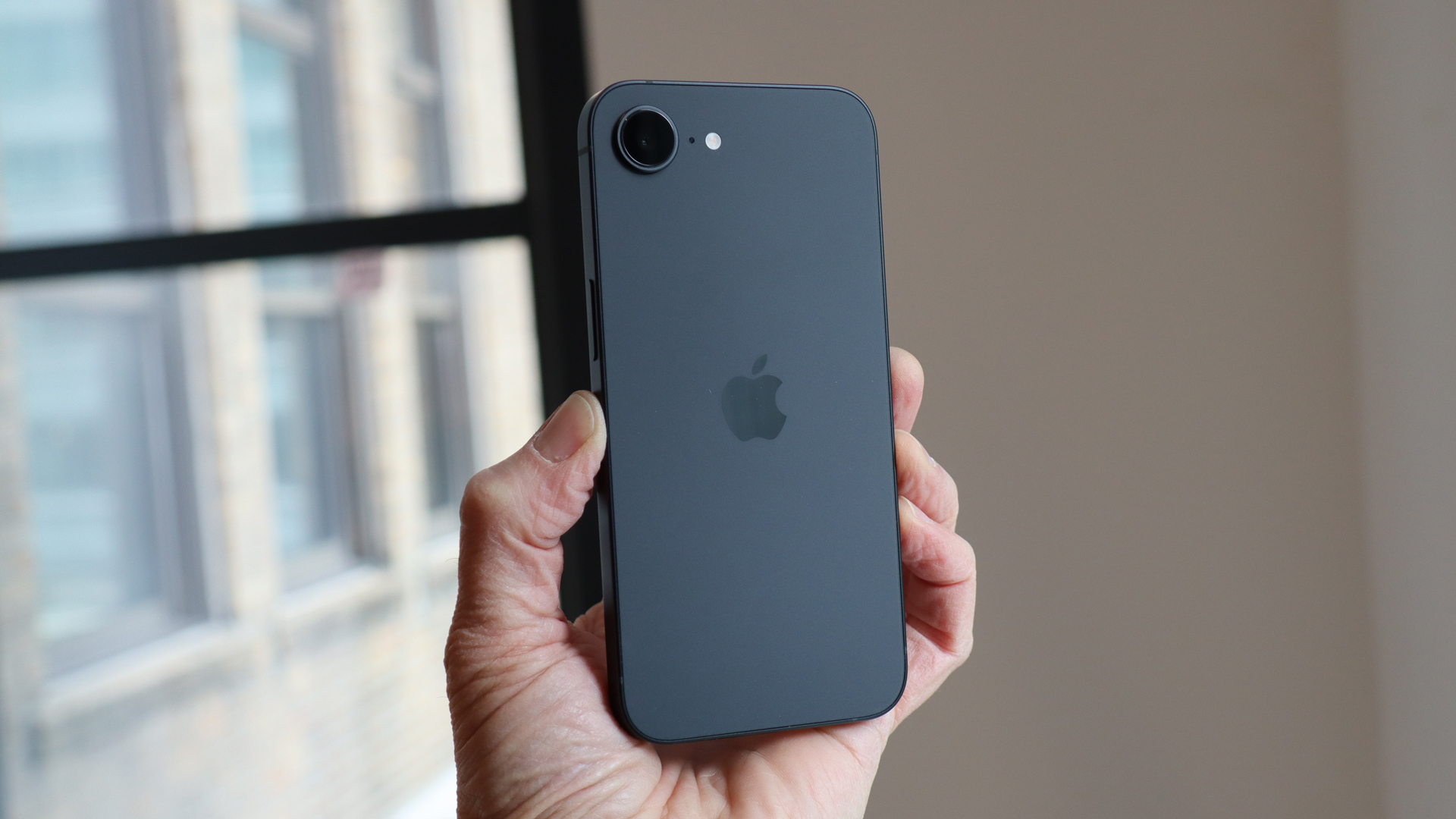
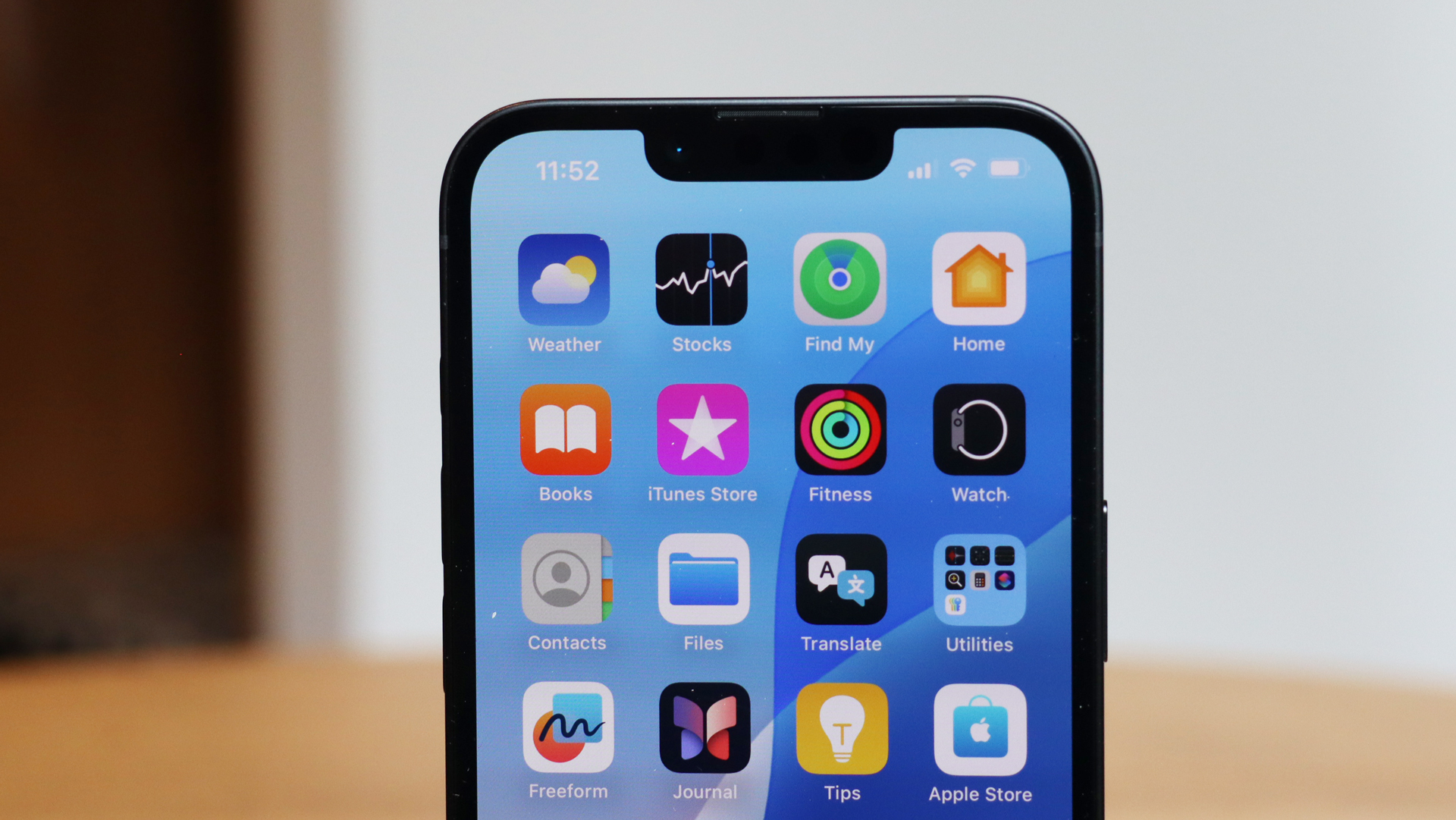
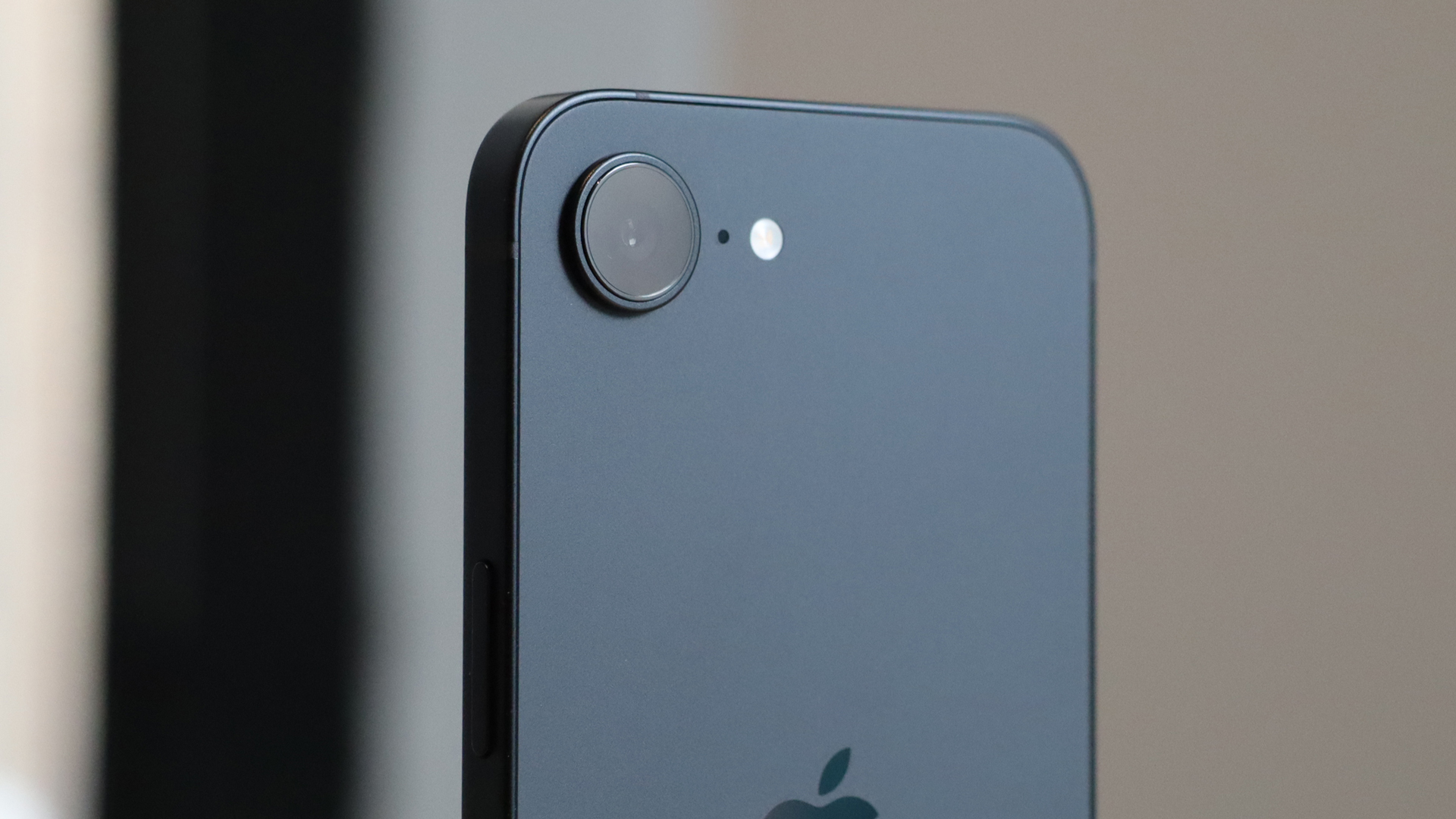
Specifications
Reasons to buy
Reasons to avoid
The launch of the iPhone 16e saw Apple discontinue the iPhone SE (2022) and iPhone 14, meaning the company's new entry-level iPhone 16 is now the cheapest iPhone available as new from Apple directly.
Sure, at $599 / £599 / AU$999, it's not as cheap as some other models on this list, but that price will at least get you a supremely powerful chipset, impressive battery life, and industry-leading software longevity.
Versus more expensive iPhones, you'll lose out on the Dynamic Island, MagSafe compatibility, and dedicated telephoto and ultra-wide cameras (which you will find elsewhere on this list) by going for the iPhone 16e, though Apple's iPhones are renowned for lasting a very, very long time, so this really is a safe choice if you don't care about flagship bells and whistles.
The iPhone 16e also supports Apple Intelligence, so when Apple's long-awaited Siri 2.0 rollout eventually hits the market, the iPhone 16e will almost certainly be compatible with it in at least some capacity.
To see how the iPhone 16e stacks up against its more expensive siblings, check out our iPhone 16e vs iPhone 15 and iPhone 16e vs iPhone 16 comparisons. Put simply, though, this is the best cheap iPhone available.
Read our full iPhone 16e review
The best cheap Pixel Phone
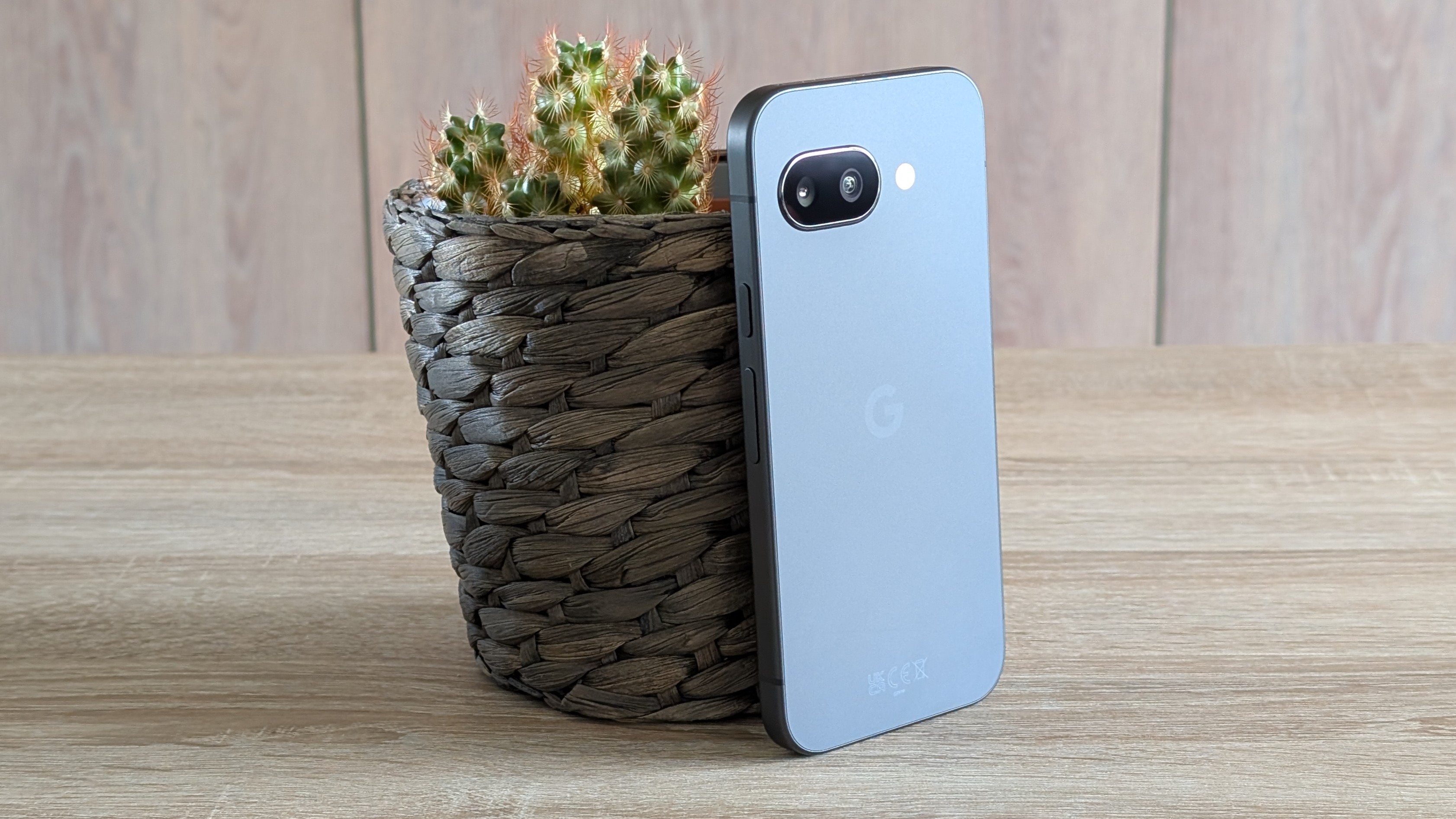
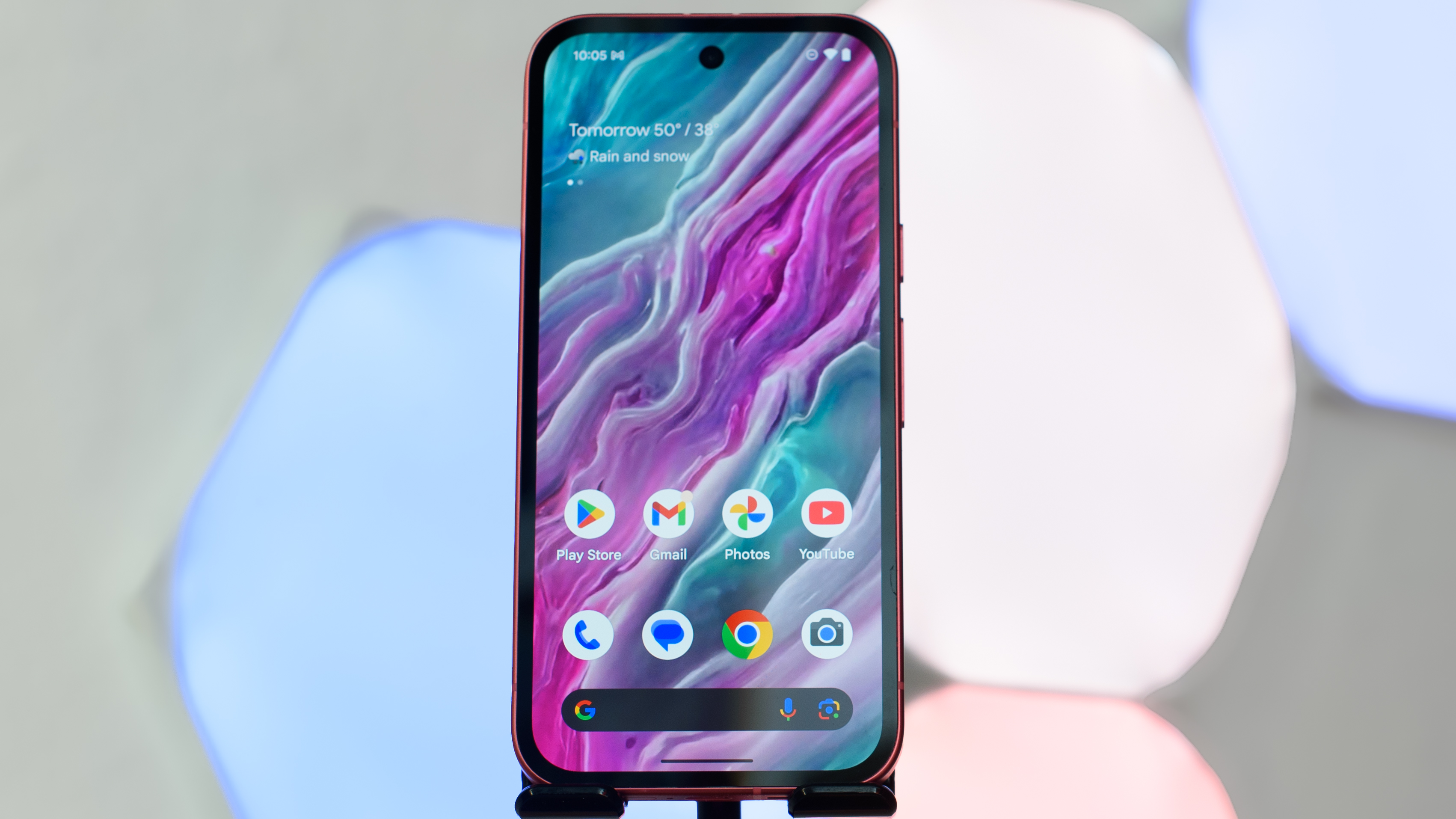
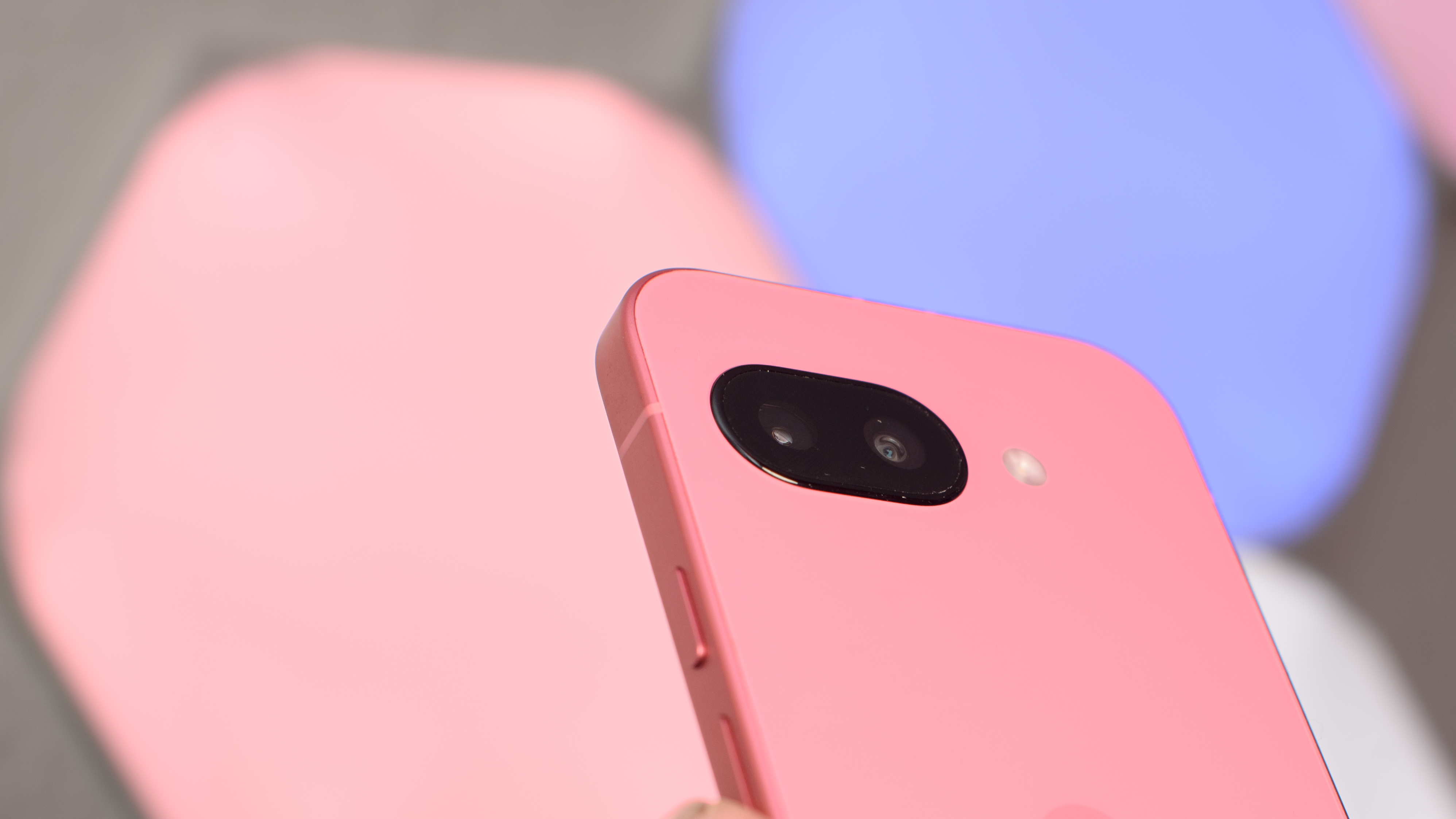
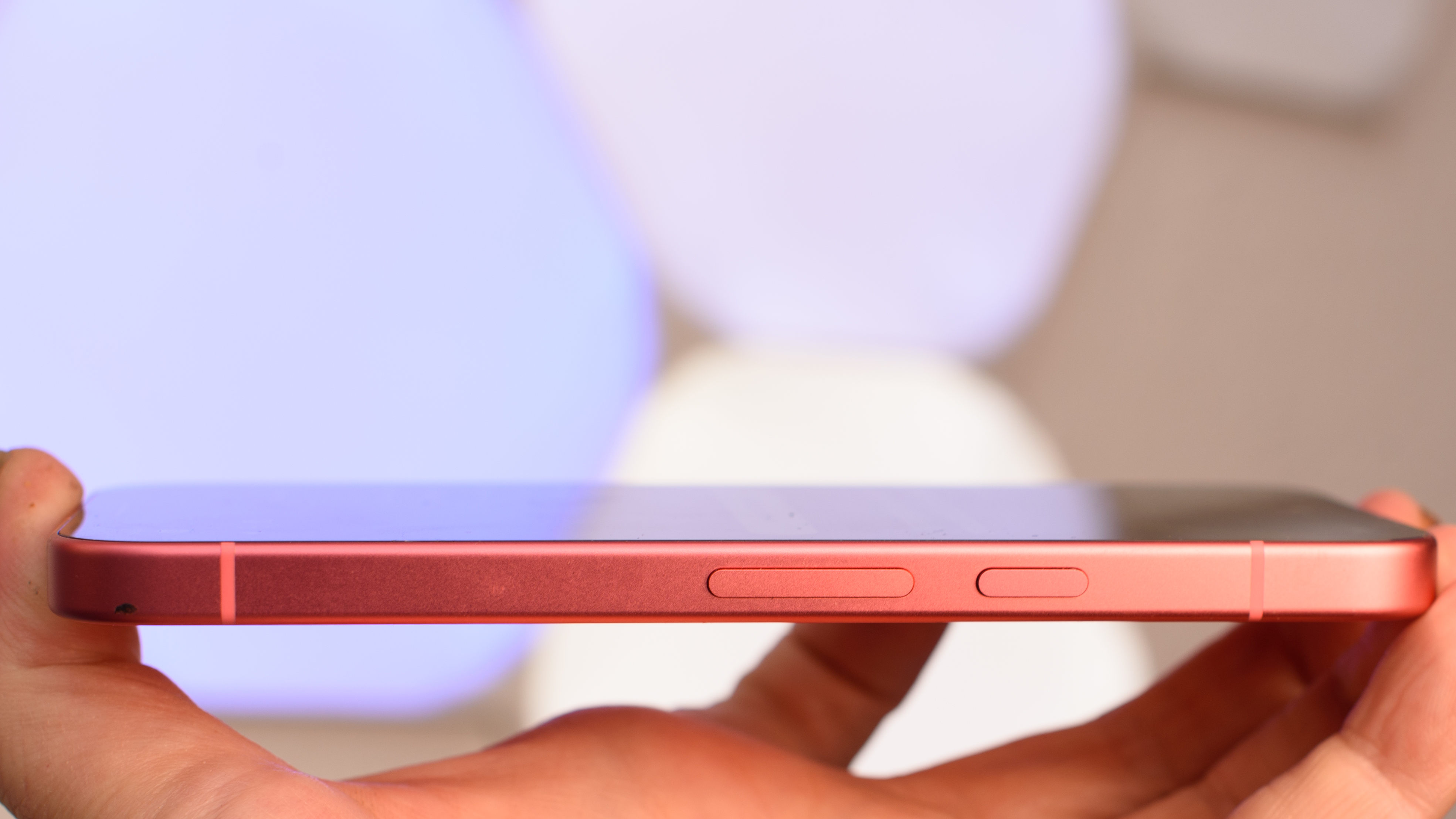
Specifications
Reasons to buy
Reasons to avoid
If you're a fan of Google's camera bar-based phone design, the Google Pixel 8a remains an attractive, now-even-cheaper option. However, its successor, the Google Pixel 9a, takes the crown as the best cheap Pixel phone by virtue of its excellent cameras, intuitive software, and superior durability (even if it looks a tad boring by comparison).
Sure, we don't love its design, but in almost every other department, the Pixel 9a delivers. It boasts the cleanest version of Android to date (complete with plenty of useful software features like call screening and AI transcription), a supremely bright 6.3-inch Actua display, and a long-lasting 5,100mAh battery (though Google hasn't markedly improved this phone's battery life versus the Pixel 8a).
Our favourite thing about the Pixel 9a, however, is its cameras, which are some of the best in this price range. While it lacks zoom capabilities, Google’s latest budget Pixel is a macro photography champion, and its 48MP main lens is no slouch, either. If you need a telephoto lens, you'll have to go for the Motorola Edge 60 (see below) or Oppo Reno 13 Pro, but the Pixel 9a is a fantastic, affordable camera phone in its own right.
Unsurprisingly, Google's Tensor G4 chipset lags well behind faster chipsets from the likes of Apple and Qualcomm, but the Pixel 9a won't have any trouble sailing through everyday smartphone tasks, so you needn't worry about power if you're not planning on using the phone for mobile gaming or intense productivity tasks.
Read our full Google Pixel 9a review
The best cheap camera phone
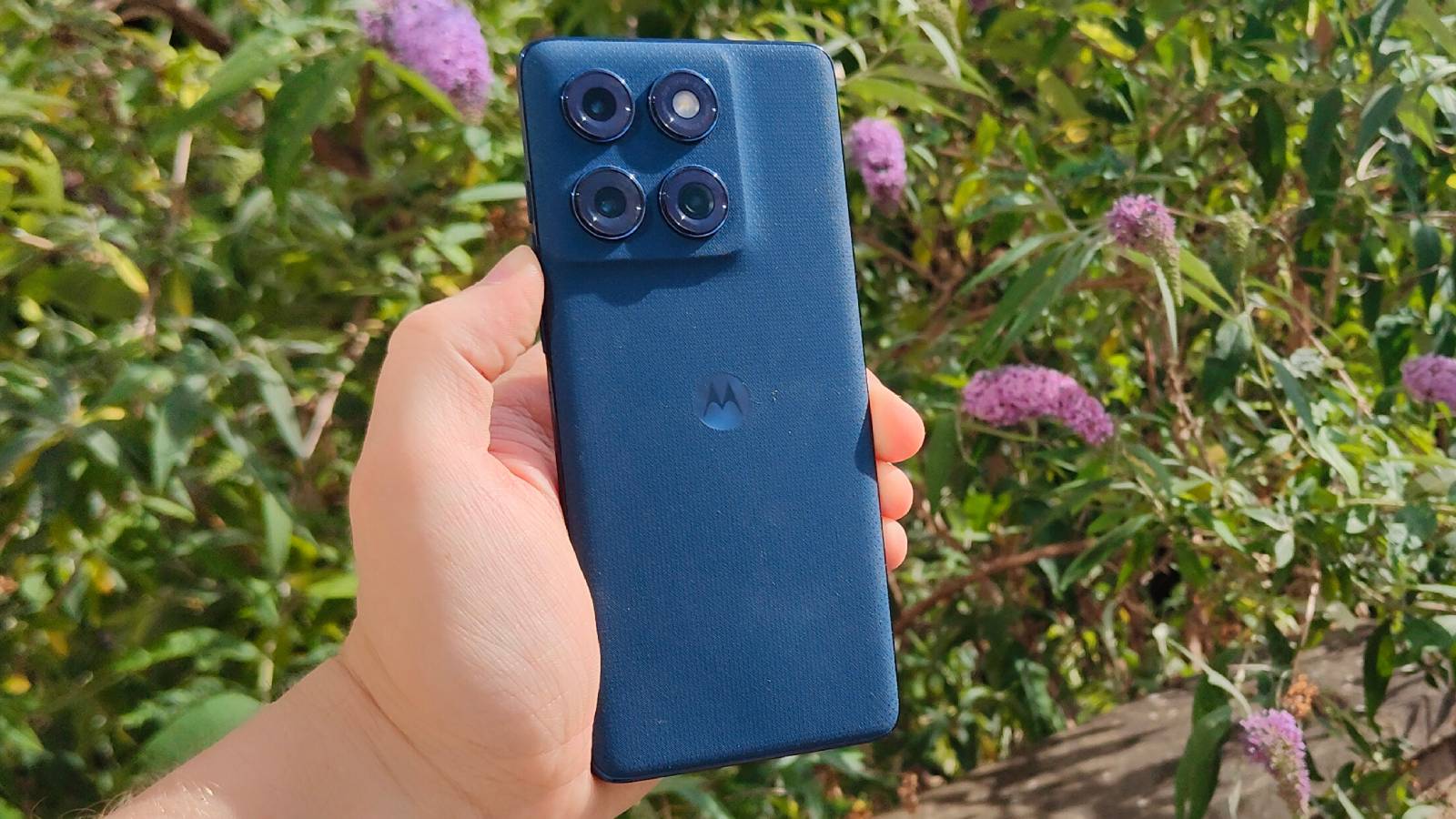
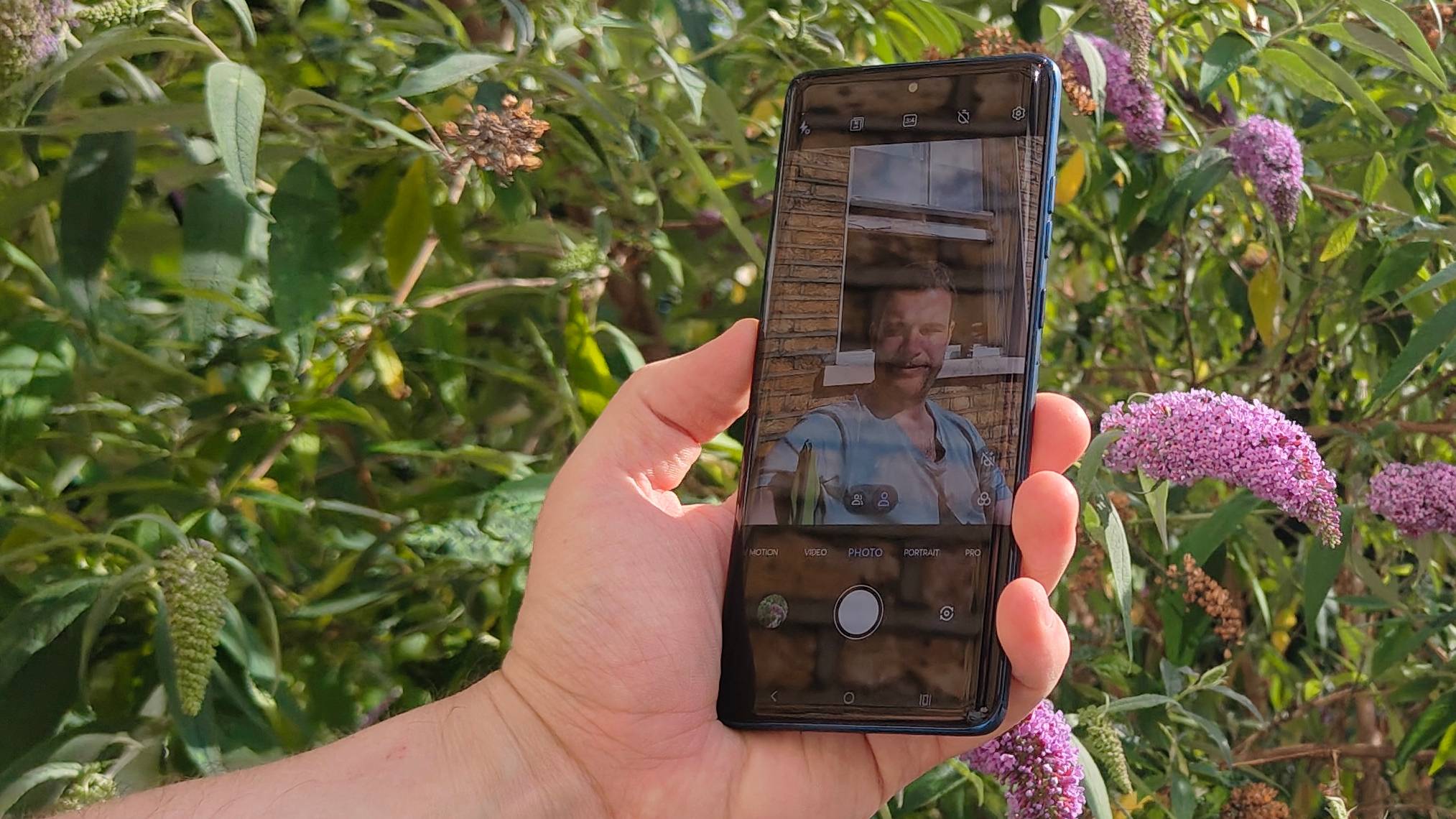
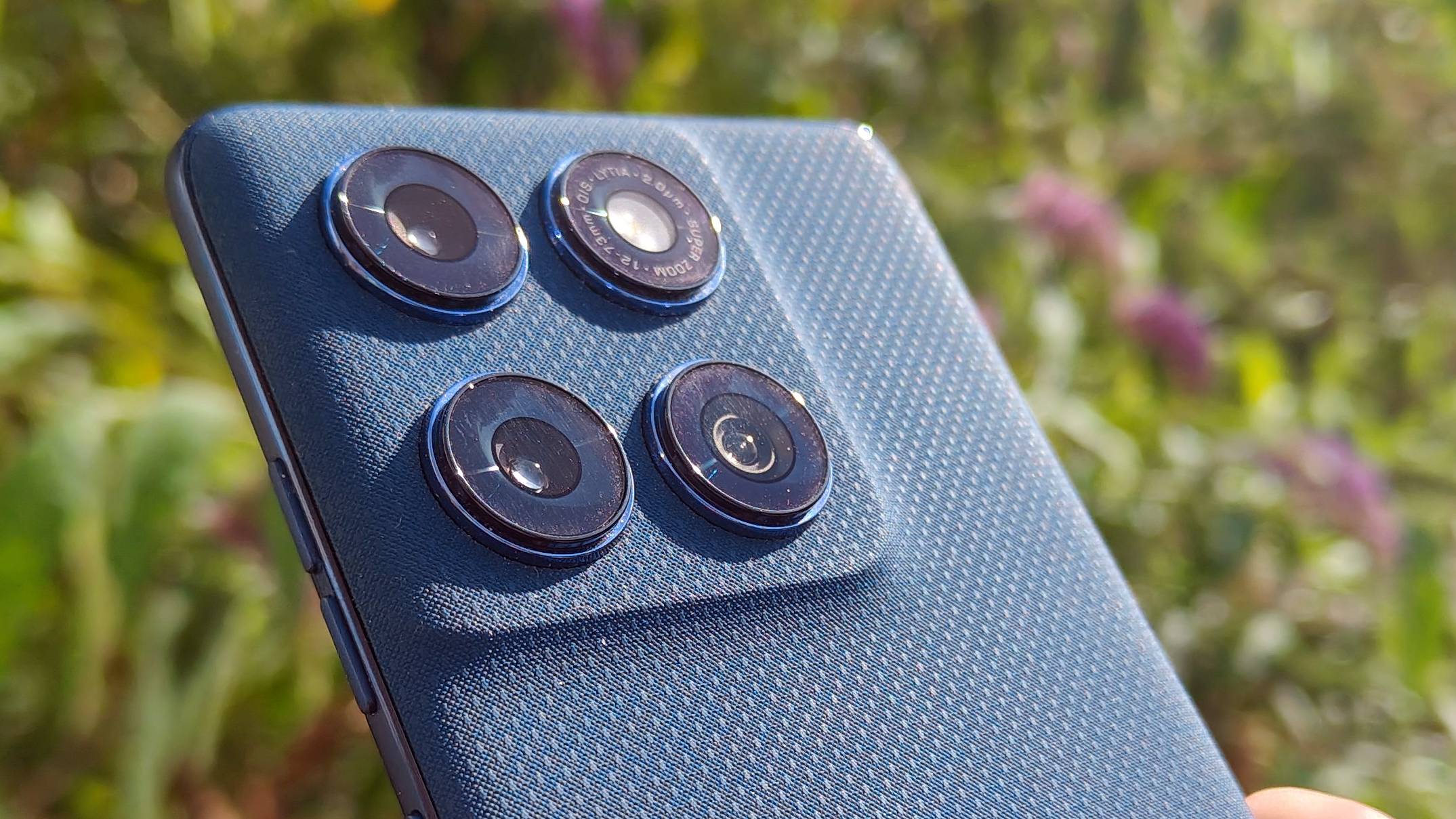
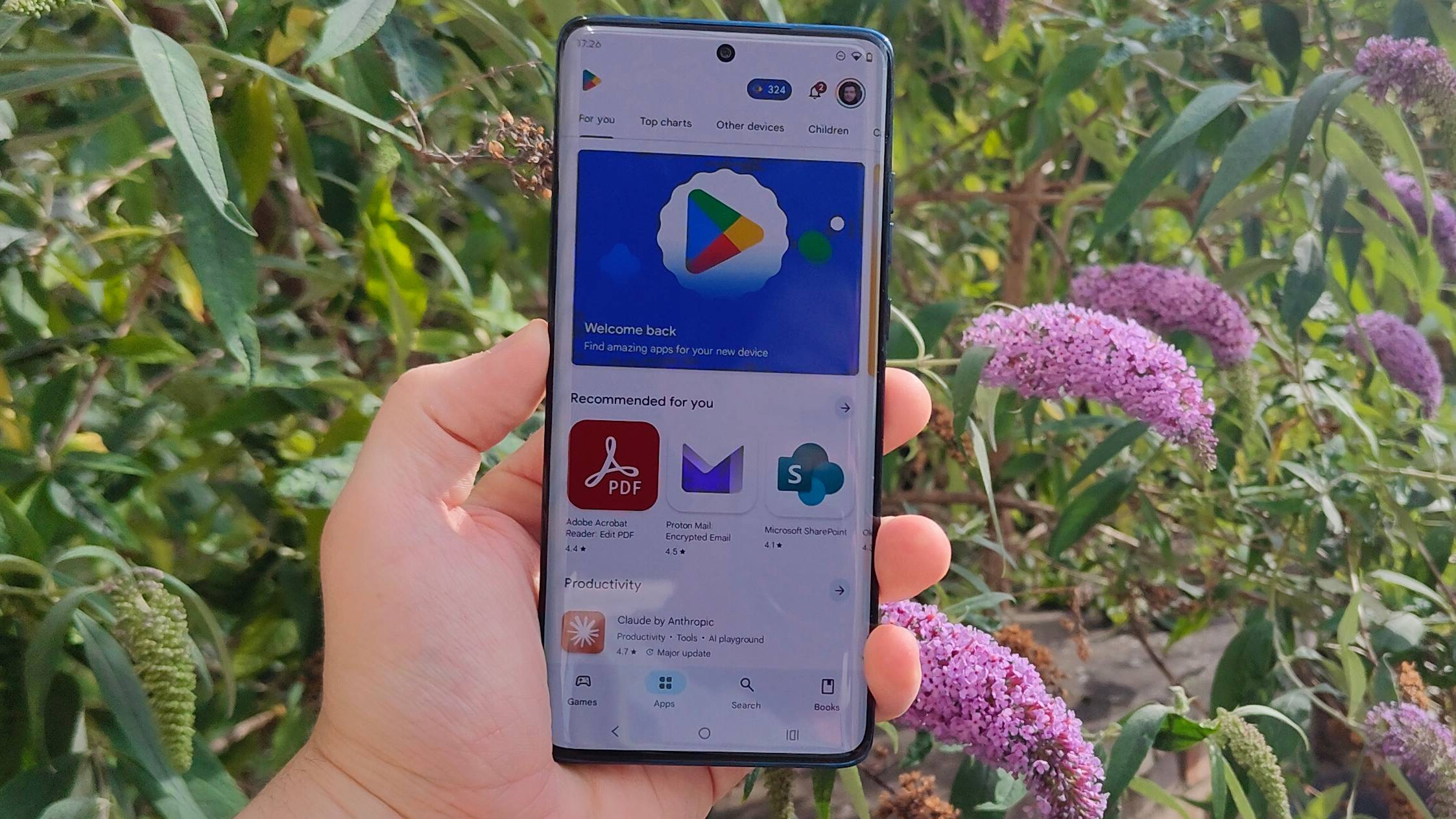
Specifications
Reasons to buy
Reasons to avoid
If you're a keen mobile photographer but don't want to splash out on one of the best camera phones (think the iPhone 17 Pro, Samsung Galaxy S25 Ultra, or OnePlus 15), then the Motorola Edge 60 is a worthy (and, crucially, much more affordable) alternative.
Only available in the UK and Australia, the Motorola Edge 60 boasts a 50MP main camera, a 50MP ultra-wide camera, a 10MP telephoto camera (with 3x optical zoom), and a 50MP selfie camera. You won't find equivalent photographic hardware in any device costing less than the Edge 60's £379 starting price, so this is a great-value handset for camera-conscious buyers.
To be clear: the Edge 60 is not a flawless camera phone. As we noted in our Motorola Edge 60 review, "photos taken on the main camera look decent, as they’re clear and bright, although they're not especially vibrant in terms of color." That said, the phone's 3x zoom "lets you get closer to details or create a nice depth of field for close-up shots," which is something you simply can't do with other models on this list.
Other specs for the Edge 60 include a 6.67-inch, 120Hz FHD display, a Mediatek Dimensity 7300 chipset, and a 5,200mAh battery, all of which make Motorola's latest mid-ranger a well-heeled smartphone for contemporary wants and needs.
Our only real qualms with the Edge 60 are its excessive bloatware and nigh-on useless AI features, but the former can be cleared up at your leisure, while the latter isn't an area in which cheap phones naturally excel.
For an even cheaper camera phone, the excellent Oppo Reno 12 Pro is still worth considering, though it's since been replaced by the more expensive Oppo Reno 13 Pro, meaning stock is hard to come by.
Read our full Motorola Edge 60 review
The best cheap gaming phone
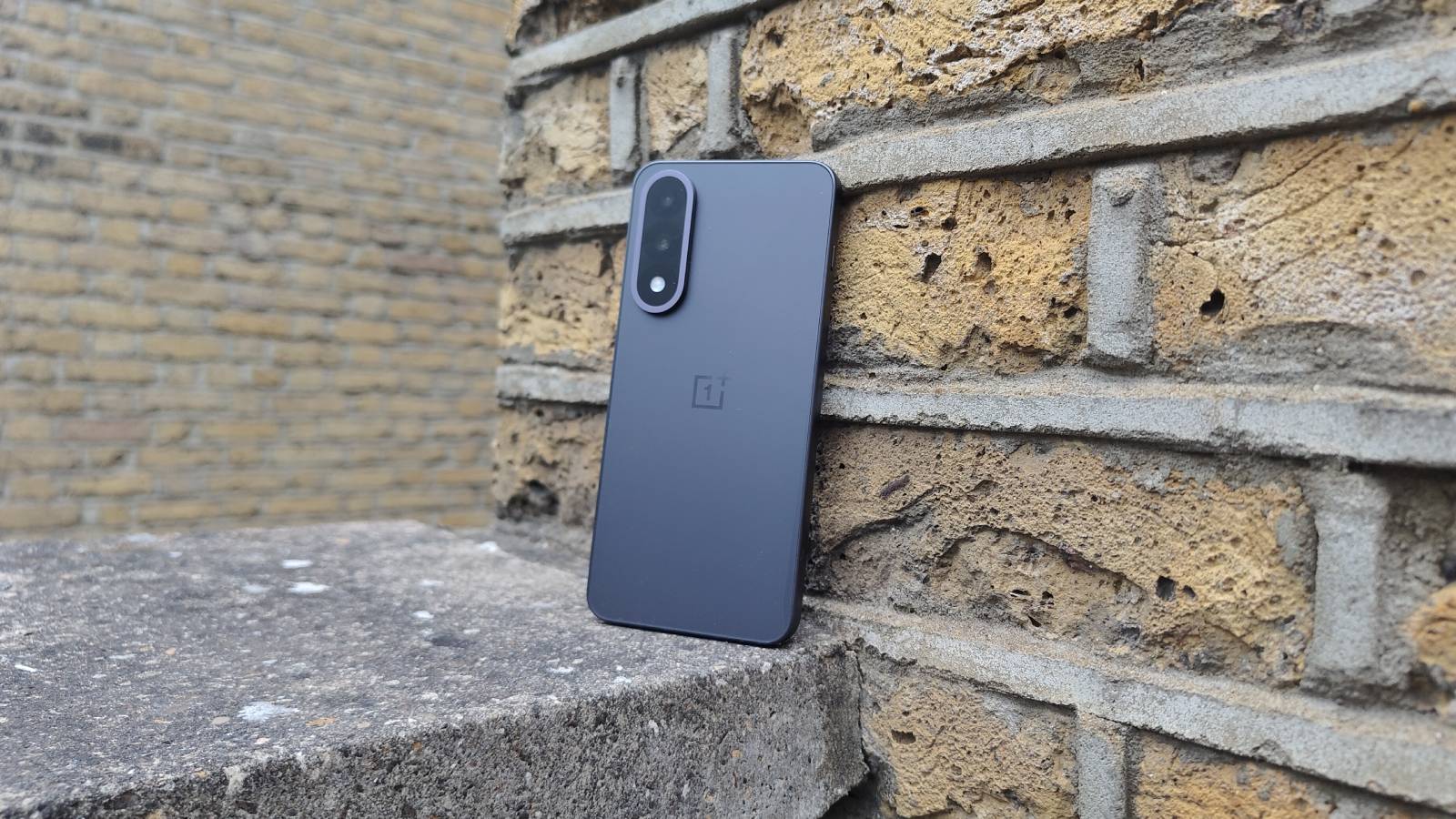
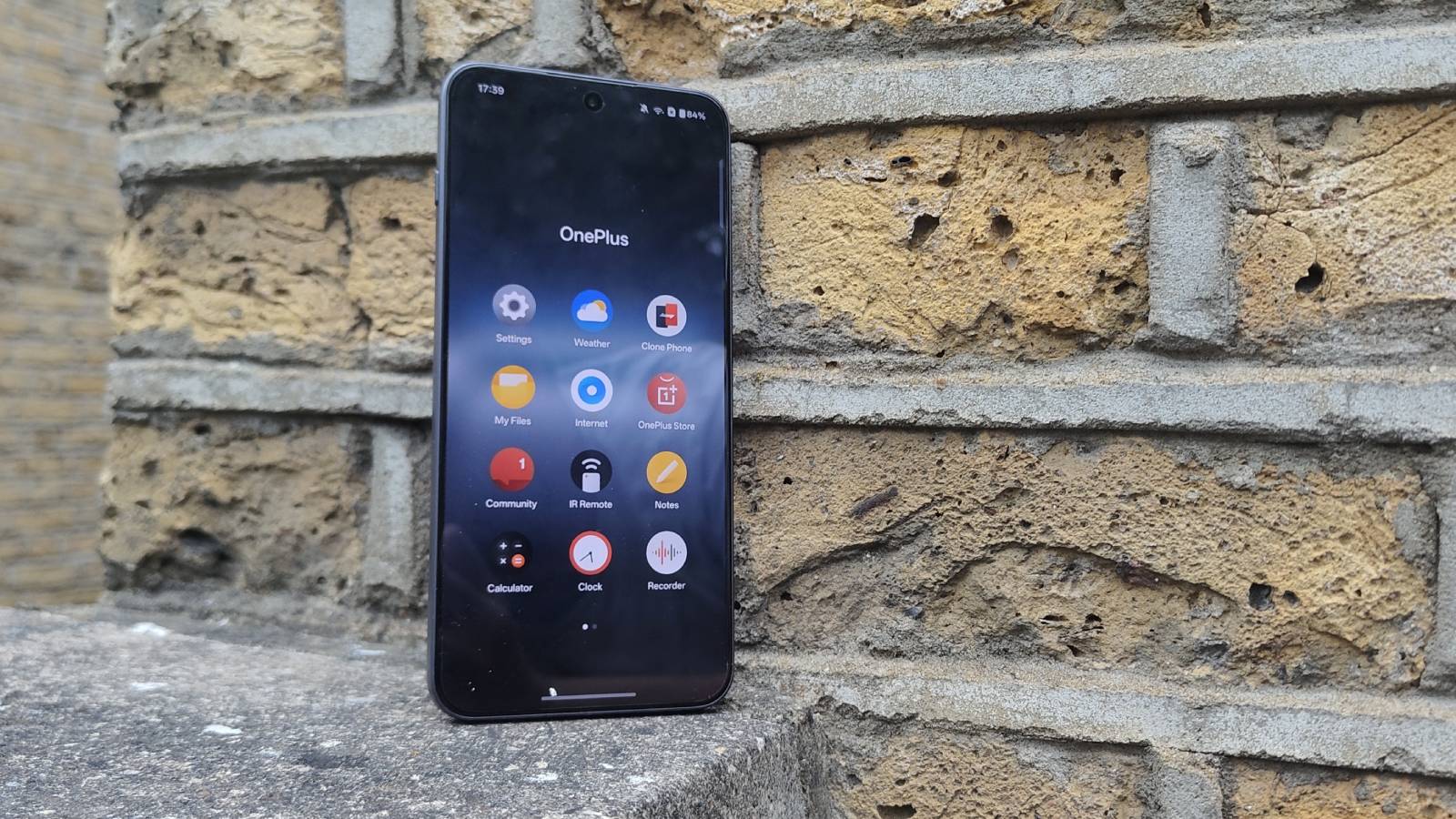
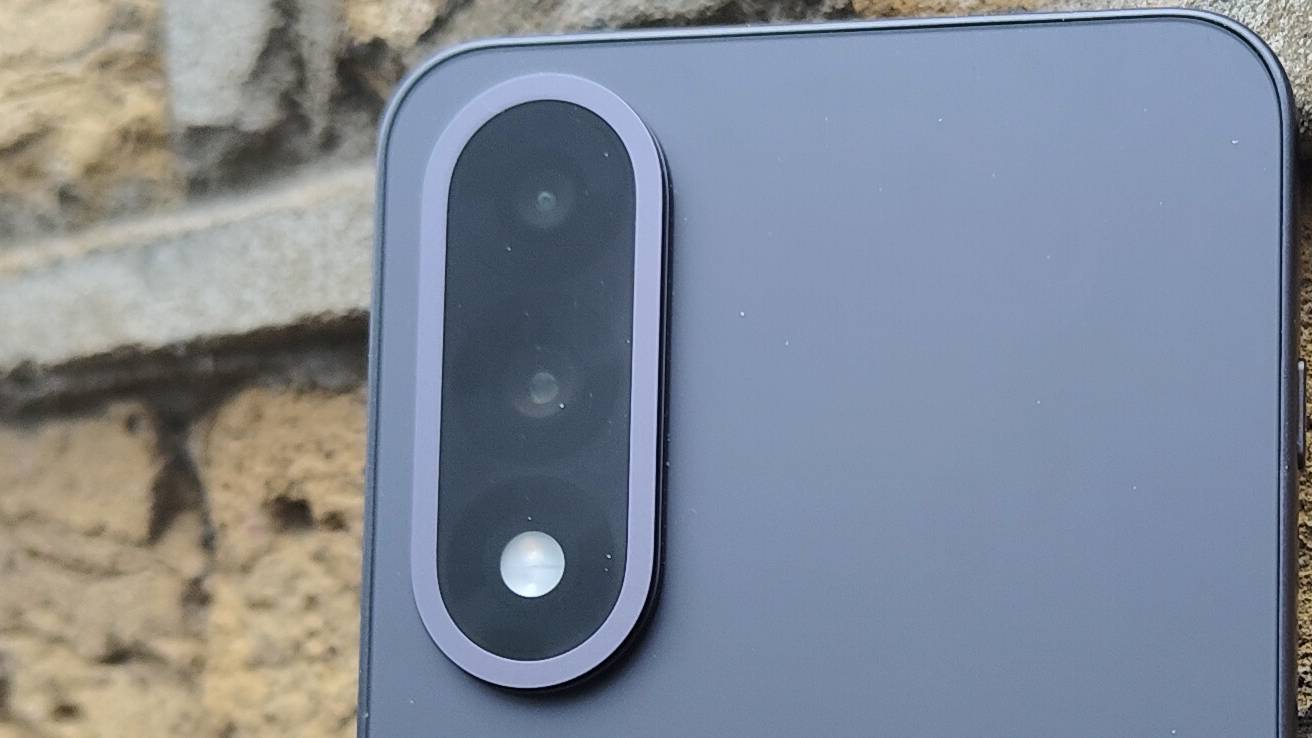
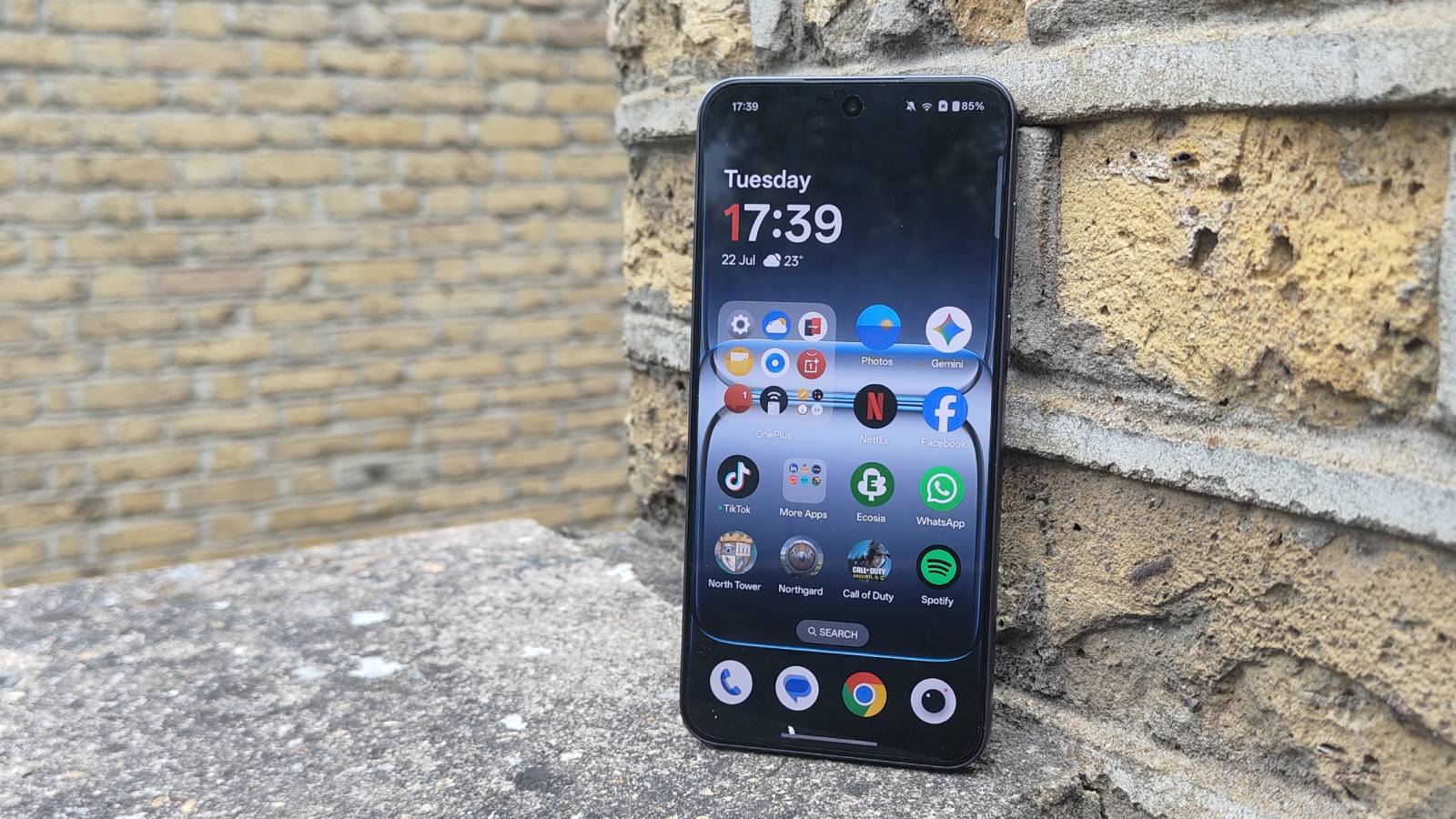
Specifications
Reasons to buy
Reasons to avoid
If you can get your hands on the OnePlus Nord 4, that device continues to offer the best power-for-money ratio of any midrange phone on the market. But given that the newer (and equally powerful) OnePlus Nord 5 is more readily available, we've opted to recommend that device as our best cheap gaming phone.
The Nord 5's Snapdragon 8s Gen 3 chipset might not sound flashy, but when paired with up to 12GB of RAM, it carries the phone to near-flagship levels of performance.
As such, the Nord 5 is something of a gaming powerhouse. It can't rival, say, the Samsung Galaxy S25 Ultra or iPhone 17 Pro Max for graphical fidelity or cooling prowess, but relative to its competition, the Nord 5 is a capable gaming handset, tackling titles like Genshin Impact and Call of Duty: Mobile with ease. As we noted in our OnePlus Nord 5 review, this phone "gives budget gamers all they could ask for."
Other key features of the Nord 5 include an IP65 dust and water resistance, a sizeable 5,200mAh battery, and, best of all, a gorgeous 6.74-inch AMOLED display that can be used even with wet hands (thanks to OnePlus' neat Aqua Touch feature).
Being a midrange phone, the Nord 5's cameras aren't anything to write home about, but in the £300-£400 price range, you can't expect the world.
If you're keen to save even more money, the cheaper OnePlus Nord CE5 is worth considering too (we're currently testing that device), while the OnePlus 13R and OnePlus 15R are great options if you're able to spend nearer £500.
Read our full OnePlus Nord 5 review
The best cheap phone for battery life
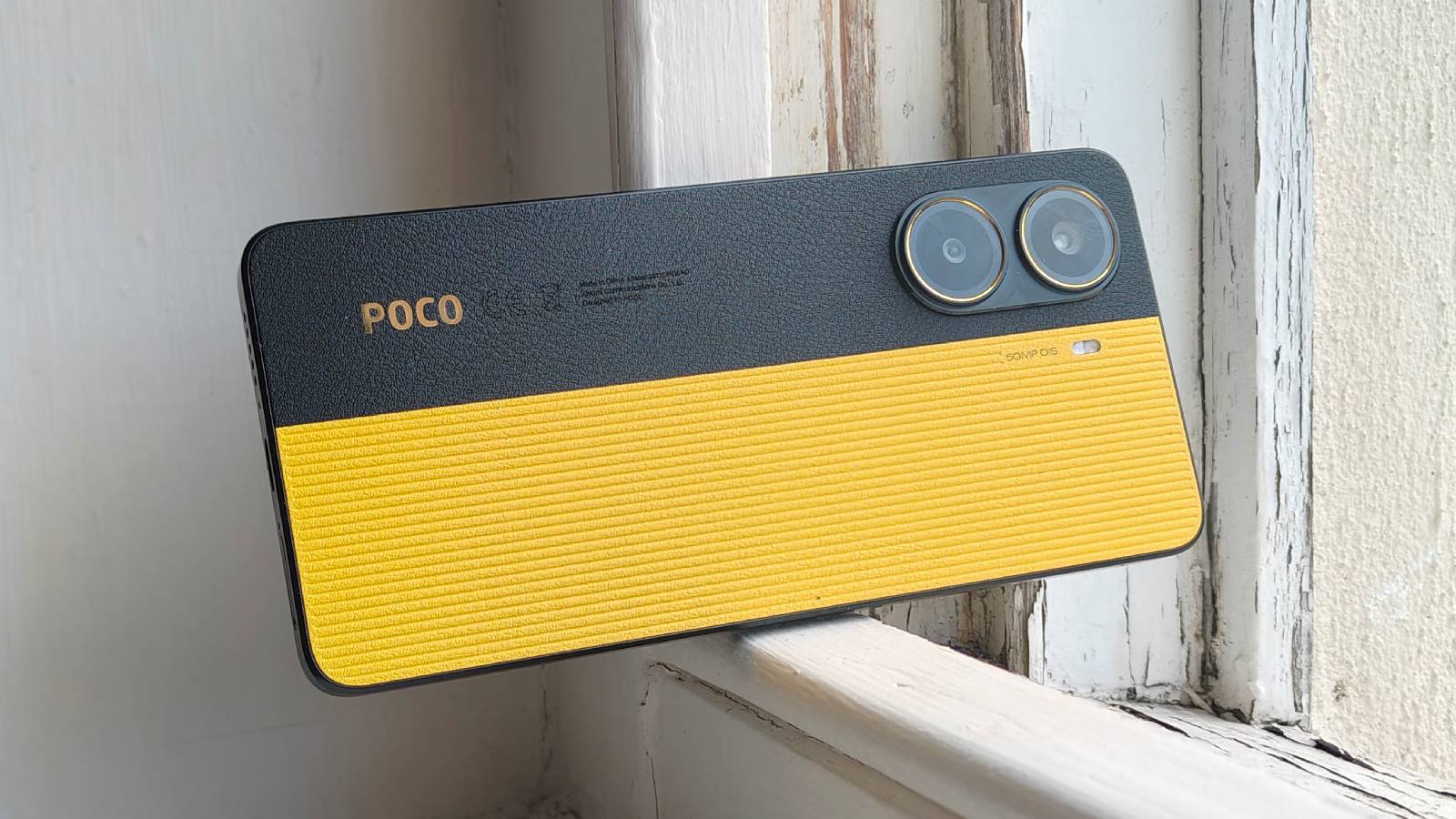
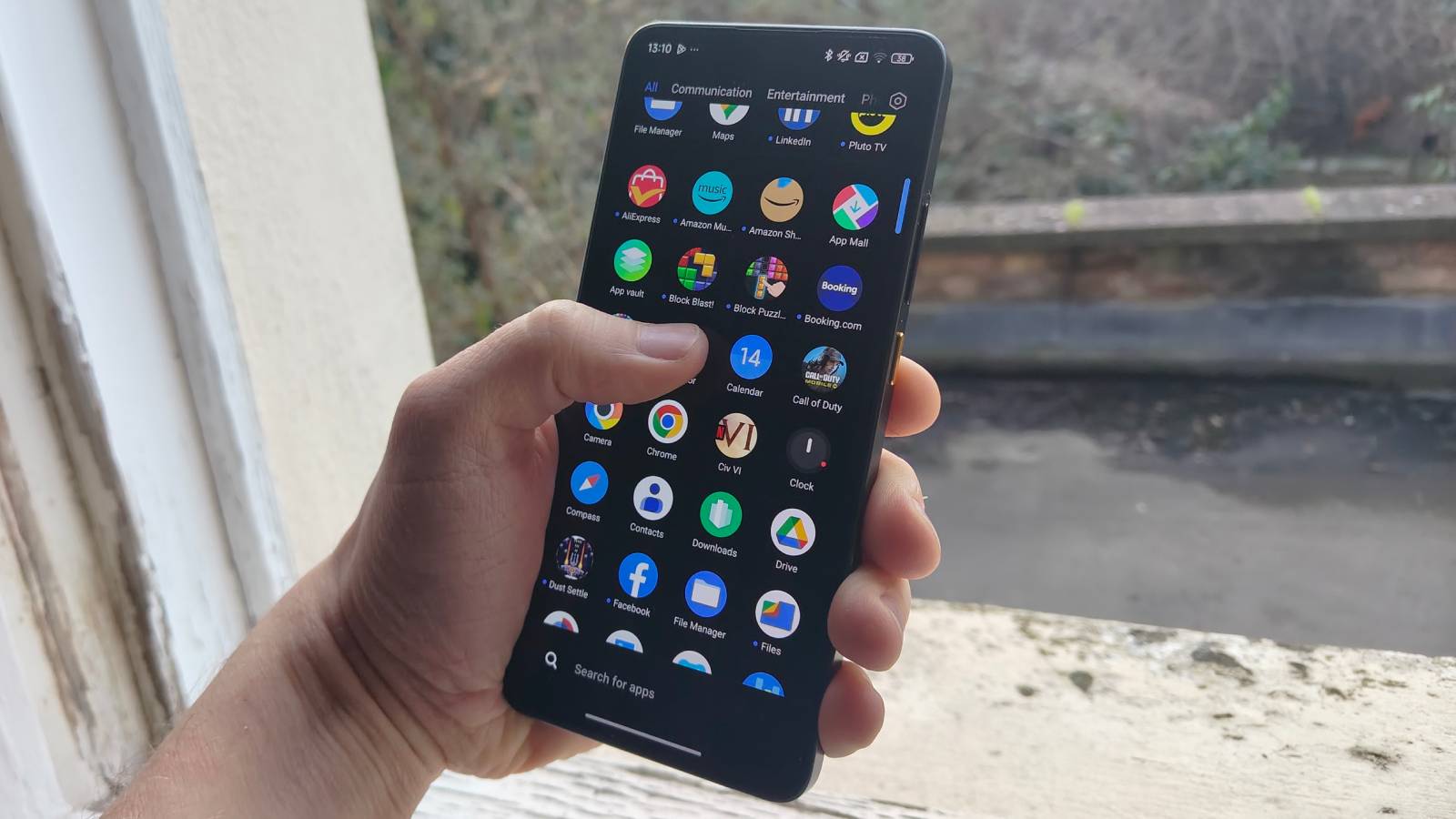
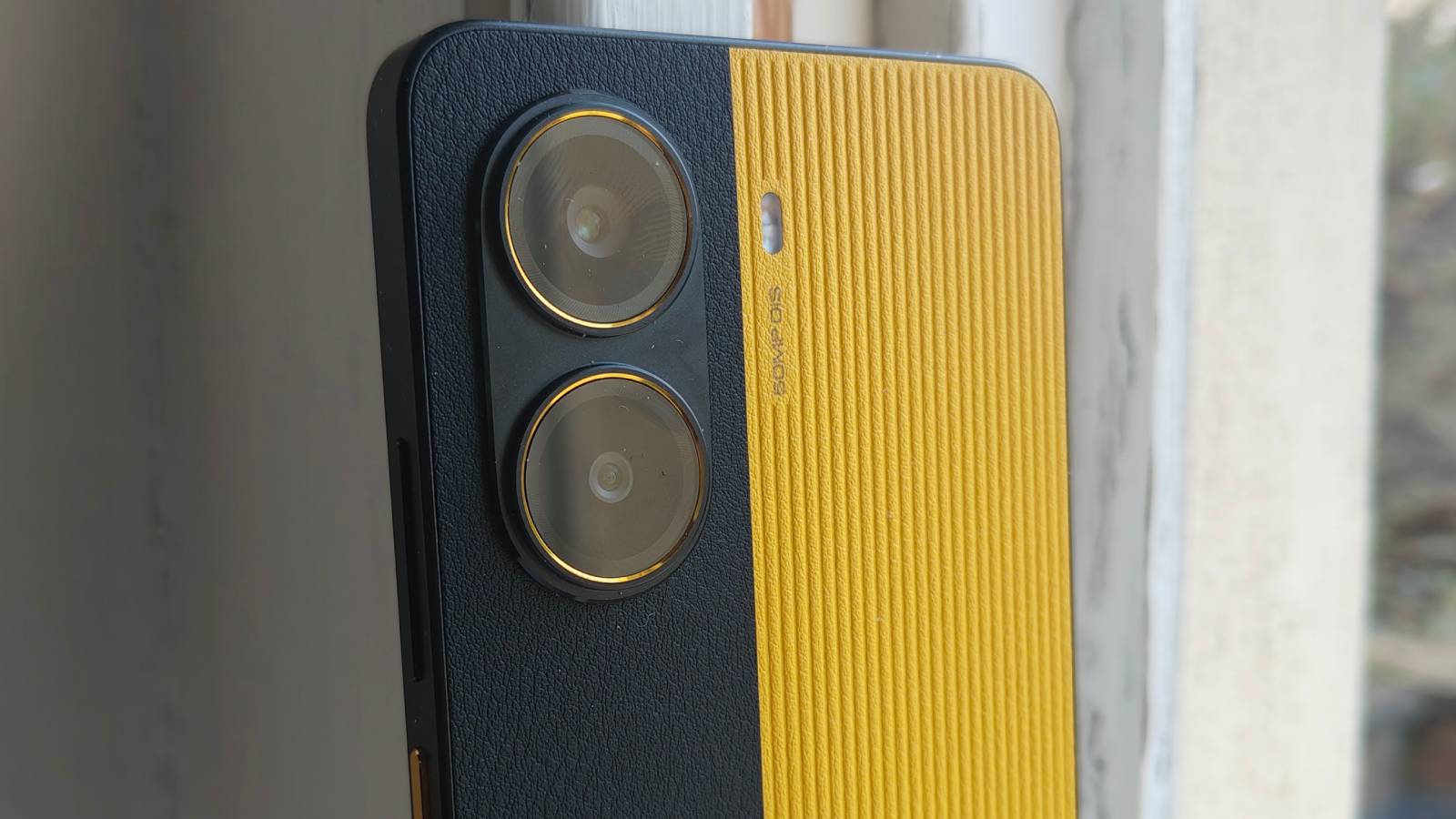
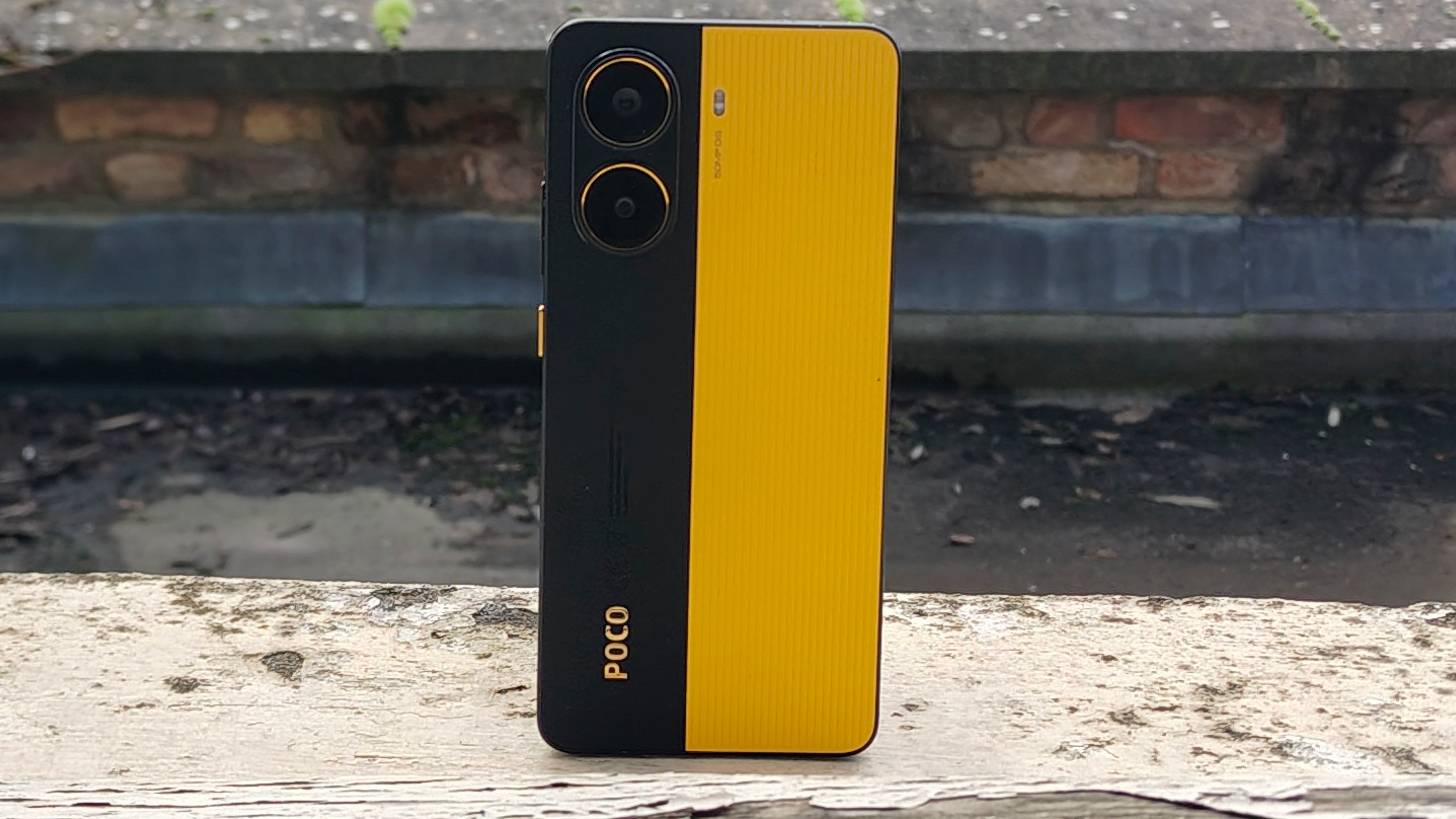
Specifications
Reasons to buy
Reasons to avoid
If you're someone who's prone to battery anxiety, the Xiaomi Poco X7 Pro is guaranteed to banish it. With a 6,000mAh power pack, this is one of the longest-lasting handsets in the midrange category, and there are very few phones on the market, period, that offer such a large battery.
But the Poco X7 Pro is worthy of plaudits beyond its two-day battery life. Like the OnePlus Nord 5, this phone's seemingly mid-tier chipset defies expectations to deliver buttery smooth performance, and you're given a choice of two RAM capacities: 8GB or 12GB (again, just like the OnePlus).
On the cameras front, the Poco X7 Pro has a 50MP lens and an 8MP ultra-wide lens, and while neither bowled us over in our Xiaomi Poco X7 Pro review, the phone is set to benefit from a healthy helping of photography-related AI features throughout its lifespan.
All told, then, the Poco X7 Pro is a powerful, long-lasting handset that defies its £309 price tag and then some. As a value proposition, this is indisputably one of the best Xiaomi phones we've ever tested.
Read our full Xiaomi Poco X7 Pro review
Also consider
The sheer amount of budget and midrange phones to pick from right now makes it tricky to narrow down a list of the best cheap phones to just six products. That's why, below, we've highlighted some alternative options.
Best for design enthusiasts – Nothing Phone 3a Pro
The Nothing Phone 3a Pro is a striking-looking phone with design-focused software to match. It's a total head-turner, and is underpinned by a suite of strong specs, including a Snapdragon 7s Gen 3 chipset, 12GB of RAM, and a 5,000mAh battery.
Best for creatives – CMF Phone 2 Pro
Nothing's sub-brand, CMF, makes phones designed for customization, and the Phone 2 Pro is the company's best model to date. It's not particularly impressive on paper, but it's a surprisingly capable all-rounder, and readily available 3D files of its rear panel mean you can create your own compatible cases and accessories.
FAQs
What is the best cheap phone?
The best cheap phone for you will depend on what you do (and don't) value in a smartphone. If you prefer a Samsung, then the Samsung Galaxy A56 could be for you. If you're already embedded in Apple's ecosystem, the iPhone 16e is your best bet. Alternatively, the Google Pixel 9a offers an affordable way into Google's AI-powered ecosystem, while the Motorola Edge 60, OnePlus Nord 5, and Xiaomi Poco X7 Pro offer a little bit of everything.
How to choose the best cheap phone for you
Even the best cheap phones don't have it all; that low price means there are almost always weaker elements, so the first step to choosing one is deciding which aspects are most important to you, and what you can live without.
Do you need excellent battery life? A sharp screen? Or capable cameras? Perhaps you require a high refresh rate, or consider 5G to be vital.
Another consideration, which isn't specifically price related, is the screen size; a smaller screen makes a phone easier to use with one hand, and easier to fit in small pockets, while a bigger screen can make apps, games and videos more pleasant to watch and interact with.
Whatever the case, once you've decided what you do (and don't) need, you can read through the entries above to find a phone that fits. Whatever balance you ultimately decide on, there's likely to be an ideal option above, and we've tested all of these phones extensively, so you can be sure they're good.
How we test
We only include a handset on this best cheap phones list once we've fully reviewed it, so you can be assured that every entry has been tested in full.
Our testing process involves using the phone as our main handset for days, or even weeks, testing all the key factors, from the power to the battery life, the cameras, the screen, and beyond.
That means we know exactly how each of these handsets performs in reality, not just on paper, and we use that knowledge to rank them, while factoring in their all-important price and value.
- You've reached the end of the page. Jump back up to the top ^
Sign up for breaking news, reviews, opinion, top tech deals, and more.

Axel is TechRadar's Phones Editor, reporting on everything from the latest Apple developments to newest AI breakthroughs as part of the site's Mobile Computing vertical. Having previously written for publications including Esquire and FourFourTwo, Axel is well-versed in the applications of technology beyond the desktop, and his coverage extends from general reporting and analysis to in-depth interviews and opinion.
Axel studied for a degree in English Literature at the University of Warwick before joining TechRadar in 2020, where he earned an NCTJ qualification as part of the company’s inaugural digital training scheme.